#the bees represent workers solidarity
Text
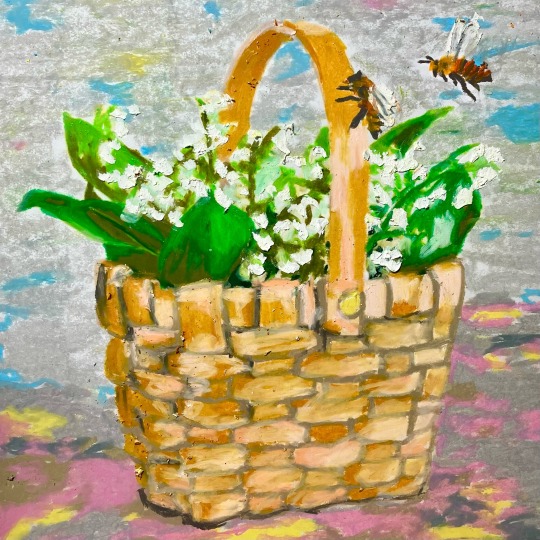
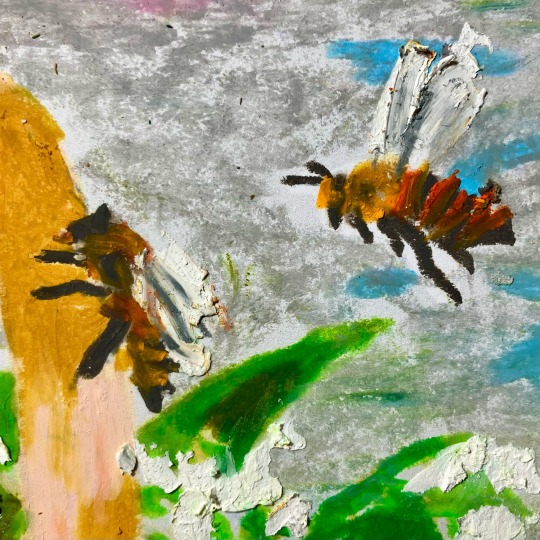
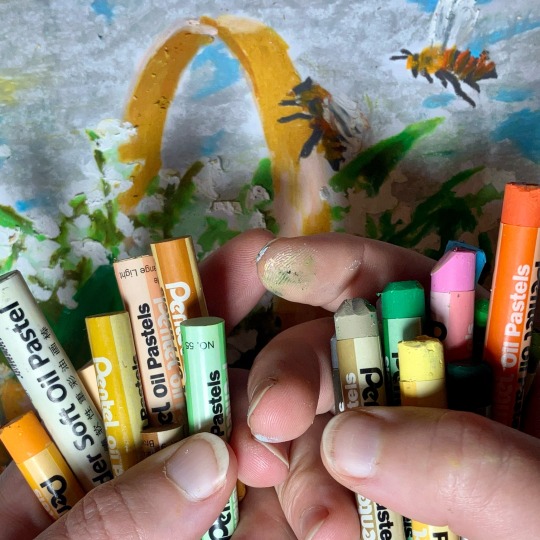
Today is May Day, which encompasses several different things:
Do you recall making little paper baskets full of flowers as a school kid?
🌸 The tradition of gifting flowers on the first day of this month dates back centuries in different cultures as a celebration of the turn of the season.
Have you heard of the pagan celebration of fire & fertility known to the Gaelics as Beltane?
🔥 It marked the peak of spring and incorporated rituals to protect crops & cattle as well as encourage growth.
Are you familiar with the complex and sometimes bloody history of International Workers’ Day?
✊ There’s a lot going on with this one and I find it hard to sum up in just a couple of sentences, but NPR has a good write-up on the history of why this day represents labor rights here
For whatever reason or however you choose to celebrate this day, have a good one! 🫶
#May Day#international workers day#beltane#may 1st#the bees represent workers solidarity#👀#may basket#international labour day
2 notes
·
View notes
Text
Kickstarter: Solidarity Playing Cards- A Tribute to Our Heroes

Only 2 more days remaining on Kickstarter, Solidarity Playing Cards is a deck that pays tribute to the people who have achieved extraordinary things in exceptionally difficult circumstances. And so, Intertype Studio collaborated with Playing card specialist Riffle Shuffle to create this deck. According to the campaign page,
The past year has been a tough one for us, and all our friends and families around the world. This deck aspires to remind us and pay tribute to the everyday heroes who kept fighting to make our world a better place. From diversity, society derives its strengths. Through diversity, society brings out its beauty. In this deck of cards, we celebrate the pillars of society: healthcare workers, frontline workers, soldiers, educators, scientists, social workers, and everyone, including you.
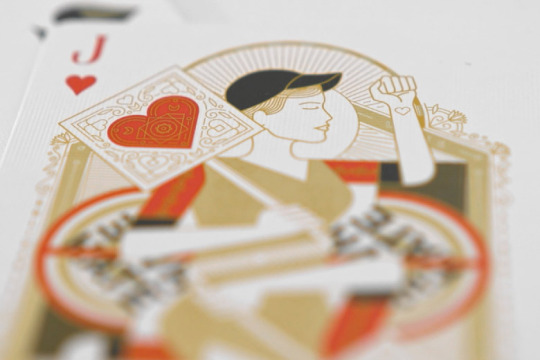
Two decks are on offer during the campaign, the Loving Red Edition, and Navy Blue Edition. The tuck box features delicate details and emphasizes the most important aspects that construct society.

Below the two crests, we declare “From our diversity comes beauty and strength”, and present the greatest societal virtues: “Love and care”, and “Peace and unity”. The Loving Red Edition comes with Red & Gold premium foils, and Blue & Silver premium foils on the Navy Blue Edition.

On the back of the cards, at the center are two fists that represent cooperation. There are plenty of little details to discover, from flowers to people exercising their everyday activities.

The pips have been redesigned with a modern twist. Also, each suit has a special meaning: Integrity in Diamonds, Unity in Spades, strength in Clubs, and goodness in hearts. The fully custom courts feature a few of the universal roles that support communities. From protestors to soldiers, from doctors to firefighters, a range of people are represented here.

The bold ace of spades showcases an intricate design with messages in the details display the harmony, the little quotations written within the details. The custom jokers include man and woman, together in harmony. As one can see on the border, they hand-in-hand, in unity.
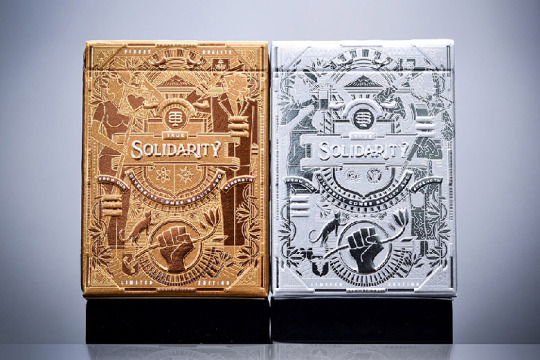
This very thoughtful and meaningful deck is printed by the United States Playing Card Company with their Premium Bee Stock, Air-Cushion Finish. The recently released Stretch Goal Edition: Solidarity Gold and Silver Medal FOIL Edition are Now Available. These will be printed by TWPCC with their Luxury Finish.
Pledge starts at $8 on Kickstarter.
[post_ad]
from Kardify https://ift.tt/3BqAzO5
1 note
·
View note
Photo
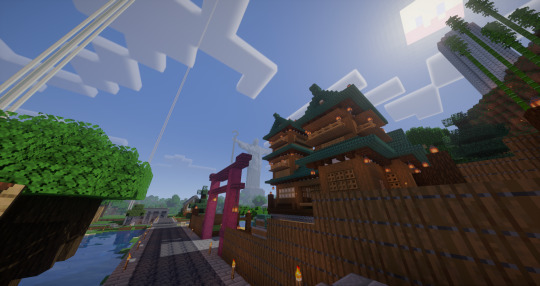
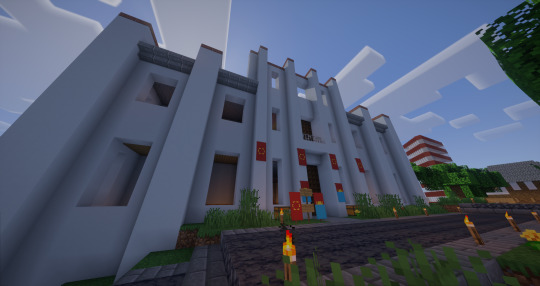

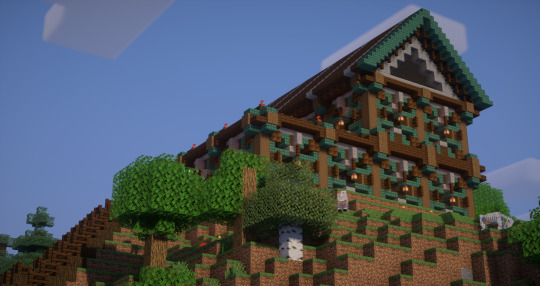





Views from Sanctuary, a neutral city commune with an ever increasing population. It is extremely easily accessible from spawn and anyone new to the server, or even new to leftism, is encouraged to join and build as they please here while they settle in and find another commune to join.
Some interesting things around the city include (in picture order):
-The Snezhny Ostrov Embassy / Temple of Kianda
Ostrov is a somewhat secretive commune with East Asian themes in their architecture, led by one of the server admins, only a handful of Farsenist ideologues have seen the commune for themselves.
-The BSFR Embassy
The BSFR is a union of many communes reflective of the USSR that mimics the architectural styles of Europe. From the Mediterranean city of Gracchia, the Industrial heartland of Ergasia, and the beautiful fields of Nordeste, the BSFR is one of the largest communes on the server in both player count and landmass.
-The De Beauvoir Embassy
De Beauvoir is an anarchist commune themed on 18th to 19th century European neoclassical architecture, featuring relatively tall buildings with distinctive French characteristics. It pays tribute to it’s namesake, Simone de Beauvoir, a French writer, intellectual, political activist, and feminist.
-The Proletaria Embassy
One of the largest communes on the server, only rivaled by that of the BSFR and Yan’an. It yields an impressive naval fleet and a massive cliffside filled with art and interesting architecture. The most notable of these pieces of art is a massive 80 block tall mural of Che Guevara, overlooking the Proletarian Navy.
-The Rosa Luxemburg Bridge and the Solidarity Pact Headquarters
The Solidarity Pact Headquarters, also called the Red Tower, houses the Solidarity Pact, a voluntary organization dedicated to collecting accurate and historical information for news and general learning. They are currently actively seeking out journalists and are taking members at any time.
- Cristo o Poderoso
Cristo o Poderoso is a socialist recreation of Christ the Redeemer in Brazil, constructed by myself and Emily. Holding a carpenter’s hammer and a Shepard's crook, it represents Christ as a worker and a prophet of Socialist Ideology, not what the church has made him today in order to make profits.
- An Aerial Overview of Sanctuary
- Bee Sanctuary & Marten Den
A large swath of the land in sanctuary is dedicated to housing and sustaining the bee population. Covered in flowers and trees, with plenty of bee hives everywhere, anyone is allowed to play with or feed the bees, so long as you don’t harm them.
Also, deep inside of the Bee Sanctuary is a small tree stump that leads down into a den. This den is for MARTENS and PINE MARTENS ONLY. Everyone else KEEP OUT. >:(
jkjk
#minecraft#gaymotherland#photography#architecture#embassy#temple#ussr#bee#bees#marten#christ the redeemer#rosa luxemburg#socialist#socialism#leftism#leftist#communism#anarcho socialism#anarchy
3 notes
·
View notes
Text
Solidarity - On - Line
How does the time of isolation affect on the work of different initiatives and communities when the public space access is defined with social distancing and lines. We discussed how three cases of the Future Architecture are continuing in solidarity, beyond lines. The three projects are reinventing the existence of space for commons and connecting individuals to overcome solitude and isolation on the fringes of the society.
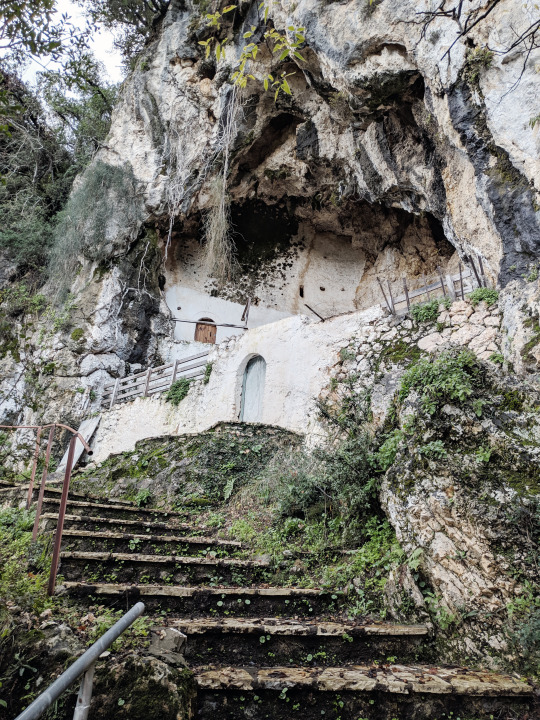
Epirus region in northwestern Greece is an area of many mythical topologies and multi-cultural identities, ranging from the Venetian influence in the coast to Ottoman villages in the interior. | Photo © Christina Serifi, TiriLab
TiriLab, an initiative and an open platform, explores multi-cultural heritage related to local technologies, gastronomy and culture specifics from rural communities in northwestern Greece. It is a joint venture of collectives and individuals, practitioners and researchers with focus on architecture and territory, local ecologies and digital technologies, circular economy and sharing models, initiated by Christina Serifi and Juan Chacón | Zuloark.

TiriLab focus on building techniques, food research and production as well as territorial research and design through workshops, encounters, research and built prototypes. | Photo © Juan Chacón |TiriLab
At the Epirus region in northwestern Greece they have identified a variety of self-organised initiatives mostly by women. All these cooperatives, associations, informal or formal organisations achieved to survive during greek economic depression and kept these villages alive by producing local products, bartering and organising social events. Christina Serifi explains that “we recognize these initiatives as rural commons sharing multiple resources, such as food and gathering a community around them, by re-using abandoned public infrastructure and creating open kitchens. We are inspired by and wish to learn from real life practices and critical human interventions, leading the way in building alternatives locally and globally.”



TiriLab aim to merge formal, non-formal and informal learning models through rural commons to create encounters with artists, local institutions and inhabitants from and for the region. | Photo © Juan Chacón, Bea Abbott
Mapping the margins would be a series of maps and documentations, identifying, for the first time, all the women associations, local agriculture cooperatives as well as abandoned buildings starting from Thesprotia province in Epirus, in order to create an active platform where many cooperatives can find a space to grow.
Alkistis Thomidou and Gian Maria Socci are observing the way “world went into an unprecedented lockdown, exposing the fragility of a lifestyle resulting from decades of neoliberal policies and individualism” and bring an attempt in 35 Meridians of Radical Rituals to imagine how architecture can reinvent itself to support this venture, learning from non professional practices that are already making a change in our cities. “Shortcomings of public services, migration mismanagement and the failure of addressing climate change demonstrate the need to revolutionize the way we manage and envision our communal space.”

Map of the current research 35 Meridians Of Radical Rituals that looks at Europe as a place of diversity and cultural crossings beyond the usual centres of cultural production. | Photo © Forty-five degrees
An itinerant survey along the 45ºN parallel, a path crossing climates, geographies and borders marked by socio-economic and geo-political struggles, where movements of people, knowledge and goods formed the hybrid place we call Europe. This arbitrary line separating the south we come from and the north where we live and work, is a symbolic space that shifts notions of centre and periphery and invites speculation on a different understanding of borders as spaces of threshold and diversity.
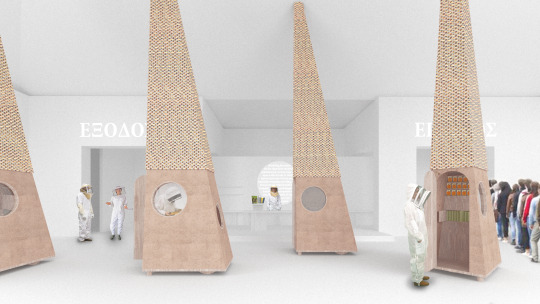
In the proposal for the Greek Pavilion at the Venice Biennale forty-five degrees explored the idea of beekeeping as practice of transnationalism and solidarity. | Photo © Forty-five degrees
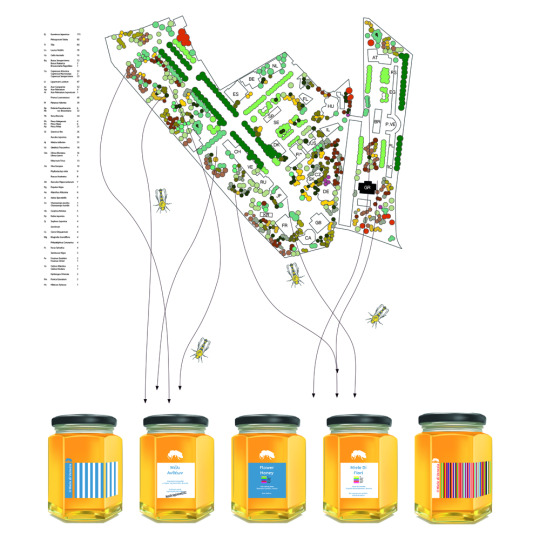
Bees become ambassadors of a metaphorical cross-border pollination of the Biennale’s Giardini. If we were producing honey at the Giardini, would this be a Greek honey, an Italian one, or something else altogether? | Photo © Forty-five degrees
Forty-five degrees are convinced that “everyday people's responses to the extraordinary crisis of our times show the power of community in inventing new modes of thinking and making. Although we often overlook or miss them, they show great potential to meet the ecological, economic and societal challenges of today. We are collecting exemplary practices and regard them as rituals, because of their power to create ties of kinship, foster inclusion and spatial identity while strengthening the capacity of collective action.” These take the form of community self-organization, informal gatherings and spontaneous actions that mainly survive through maintenance and care. They point towards an unexpected ressurenge of the commons, encouraging new forms of citizenship and new types of care for life forms. They show how radical innovations, new traditions, memories and technologies can generate alternative futures of living together across physical and digital space.

Forty-five degrees is focusing on mapping and recording informal acts of care that are already making a change in our cities. Here the example of containers. | Photo © Forty-five degrees
Lemonot is a design and research platform, founded by Sabrina Morreale and Lorenzo Perri, interested in iconographic gestures enabling the mutual immanence among objects, bodies and rituals. In particular, their work attempts to define peculiar architectural settings for updated gastronomic ceremonies: food preparation and consumption construct a privileged ground to enact symbolic behaviors. Their research focuses on contemporary folklore – as a trigger for unconventional spatial languages, between geometrical abstraction and material figurativism.

A totem of miniatures to re-enact the Mesa de la Challa, AAVS 2018 | Photo © Lemonot
They researched Mamani’s buildings, nicknamed “cholets,” a portmanteau made of the high-class “chalets” (as in, Swiss cottages with eaves) and the derogatory “cholo” (as in, racist slang for an indigenous person). They are build manifestation of folkloric andean rituals. The spacial languages characterizing them are rooted into a procession, traditional mass, mythological characters.
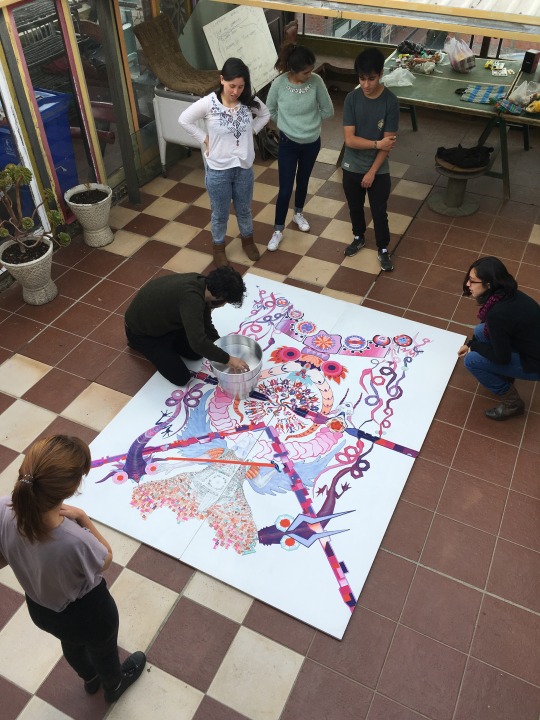
Cultural Assembling, the AA Visiting School El Alto 2018 led by Lemonot.| Photo © Lemonot
Cholets are more than just outlandish buildings with zany colors; they come with the promise of financial returns. In a typical cholet, the ground floor contains stalls that can be rented out to businesses; the second and third floors house a party venue; and on the upper floors are residential apartments. “For me, of course it represents the colors of our culture, but mainly it’s the result of hard work,” says Joaquin Quispe Condori, a restaurateur who co-owns a cholet with a salon called El Crucero del Sur, with his siblings, “I believe that we are really hard workers, and all the effort, it’s [shown] here.” Every owner of the cholet becomes a tycoon, who works and organizes community parties and feasts. Everyone turns to him with condescension and admires him. The colors are in fact inspired by Andean traditions but as well on the owner’s choices.
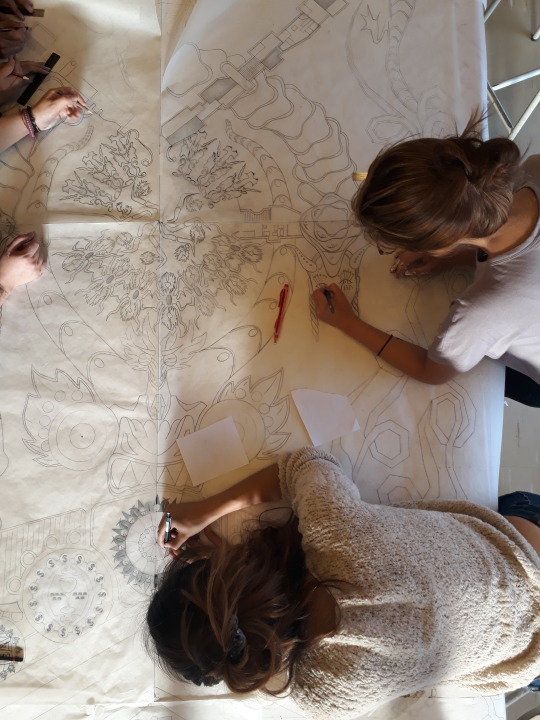
Drawing a collective tapestry to represent the characters of the Diablada, AAVS 2018. | Photo © Lemonot
Controversies 1 (social) Owning a cholet is a powerful status symbol that announces the attainment of wealth. The cholets constitute new markers of wealth inequality in a city whose emerging cholo bourgeoisie increasingly contrasts with, for example, the poor street vendors who set up shop right outside their front doors.
Controversies 2 (commodification of traditional rituals) Three days a week in the city of El Alto, cholitas dressed in their traditional outfits battle it out in the ring in an event that’s a hit with locals and a top tourist attraction. These women are theatrically performing for tourists, betraying the values of their traditions.
Controversies 2 (commodification of traditional rituals) It is not the only exaggerated event or ritual to entice tourists to come. The preste, which is a folloric moment for the aymara, becomes today an electronic party with international djs and sponsors that takes place inside the cholets, once a year. Traditional dancers, masks and cholitas are dancing covered in led lights. A form of celebration or gentrification?
Controversies 3 (political) The rise of Freddy Mamani’s architecture and the government of Evo Morales is strictly linked together. Evo won with 53.7% of the votes, an absolute majority, unusual in Bolivian elections.
Controversies by Daniel Runnels (2019) Cholo aesthetics and mestizaje: architecture in El Alto, Bolivia, Latin American and Caribbean Ethnic Studies, 14:2, 138-150, DOI:
***
What is the purpose of your community?
Forty-five degrees is an architecture and urban design practice dedicated to the critical making of collective space. Our particular interest lies in Europe, this hybrid place in constant mutation, where we are investigating emerging transcultural traditions, memories and technologies and their potential to shape radical practices of commoning grounded on spatial justice and environmental awareness.
TiriLab is a joint venture of collectives and individuals, practitioners and researchers with focus on architecture and territory, local ecologies and digital technologies, circular economy and sharing models. We work closely with women cooperatives, associations and rural initiatives in Thesprotia province in Greece, aiming to create an active knowledge network, in order to empower them, give them visibility and foster their multilayered identity. Our main objective is to visualize the territory as a whole, as a shared cultural space and add a plural voice to the urban-rural dichotomy discourse, raising awareness of their interdependence by reorganizing relations and practices, through a culture of solidarity.
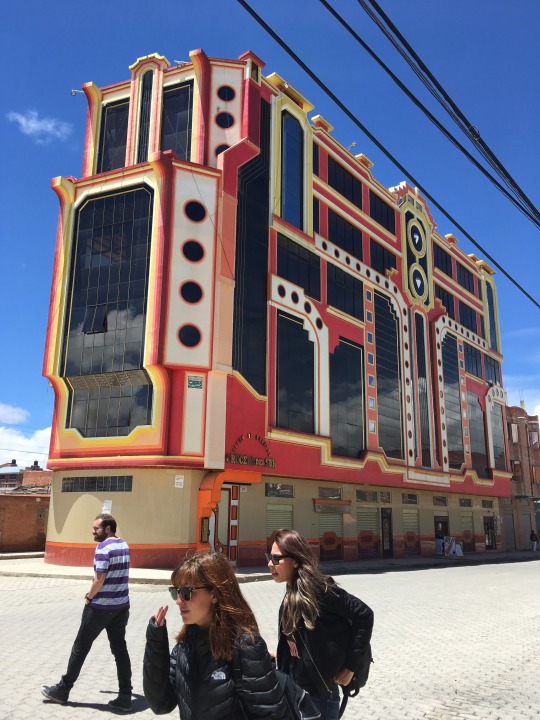
Cholet El Crucero del Sur, site visit with Freddy Mamani Silvestre. | Photo © Lemonot
Lemonot: The AAVs El Alto was held for the first time in January 2018 as an educational programme in La Paz, Bolivia on behalf of the Architectural Association in London. It takes the form of an intensive workshop - everyday full-time for two or three weeks in a row - involving students of architecture, art, fashion, film-making and anthropology. The programme explores through different media the relationship between architecture, cultural identity and rituals in the Bolivian Altiplano, with particular emphasis on the understanding of the cholets constructed by Freddy Mamani Silvestre. International students from all over the world have the chance to work collectively with local ones, experimenting together with heterogeneous sets of references and teaching methodologies.
How do you create a community network (digital, personal, combination)?
Forty-five degrees: Since we started collaborating, we often happened to be physically in different cities, countries, continents, time zones etc. To sustain our community we make use of digital tools but also meet physically when possible. Through research and design, on-site workshops, collaborative and educational formats in multiple scales, we try to understand the locality of each project and seek for moments of entanglement and empowerment of the local community, aiming at creating collective and inclusive spaces.
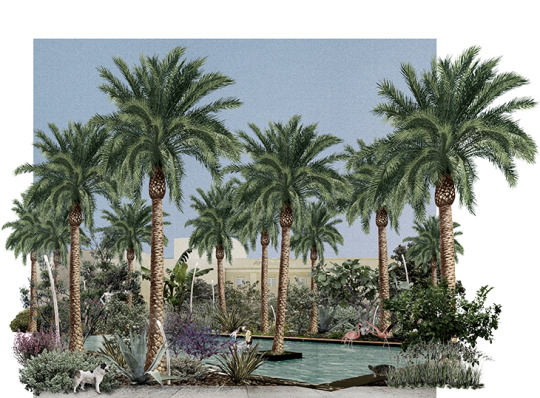
In Rhodes we proposed to turn a concrete plaza into a community garden organized according to the natural ecology of an oasis, recuperating winter rainwater for summer refreshment. | Photo © Forty-five degrees
TiriLab: TiriLab was born with the aim of creating, participating and being part of communities, trying to gap binary concepts of roles and contexts: urban and rural, face-to-face and digital, expert and community. Since we are in a very early stage of community engagement we are working on different levels of approaching. On one hand, we are mapping the territory, through the project “Mapping the margins”, for possible partners, associations, local administrations and civic society groups to create a local network for developing activities. This is an ongoing project and has brought together very interesting groups and initiatives. We have started creating encounters and workshops will local women associations through cooking, prototyping and discussing. All these local informal or formal organizations achieved to survive during greek economic depression and kept their communities alive by producing local products, bartering and organizing social events. We value and identify these initiatives as rural commons sharing multiple resources.

Masks from ordinary moments, AAVS 2019. | Photo © Lemonot
Lemonot: Students are recruited mainly online, through an open call on the AA website. However, especially for the ones coming from La Paz and El Alto, the word of mouth is quite important: we always try to advertise the workshop firsthand in different Bolivian universities, getting to know students in person as much as we can. Indeed, before launching the Visiting School, in 2017 we lived in La Paz and it was not only an amazing experience, but also an essential opportunity to familiarize with the daily realm of such a peculiar context. This coming May we are organizing Tales from the Altiplano: a series of Instagram lives with artists, photographers, architects and anthropologists. We are collecting materials to take stock of our experiences about New Andean Architecture in La Paz and this will set the basis for a series of publications concerning daily practices and rituals, highlighting how they often come with a spontaneously rich iconographic apparatus that should consciously inform the production of spatial languages.
How and which people do you involve?
Forty-five degrees: Our projects and research are based on collaborative work. We are very interested in the acts of spontaneous appropriation as a means of co-authorship and agency. Therefore, in all our projects we include final users by providing open frameworks for them to reinvent their own urban experience. Most of all, we are interested in discovering impactful urban practices that often fly under the radar of professional recognition. Therefore we try to uncover the hidden actors who run and maintain the city as active participants in our decision-making processes. These might comprise retirees, street-sweepers, gardeners, and in general citizens who are not normally included in the conversation, a temporary community of "city heroes".
TiriLab: On a second scale, we also invite every year (Summer of Nothing), mostly international professionals who have developed projects with different communities around the globe in rural or urban areas. Together we enjoy, discover and research the region and its secrets in a profound way in order to bring another perspective in the local context. Our aim is to initiate the creation of a digital platform, relating it to a shared transitional territory which is inhabited in a non-binary way. What if we consider just one environment with digital and physical capabilities?Digital connection and internet are very recent arrivals in several communities in Thesprotia. In TiriLab we are starting to plan how some of the groups operating in the area could be more engaged with the digital world, to gain visibility and also to have the opportunity to exchange knowledge with the groups operating further away from them, if they are willing to.

Crafting ceramic pieces is the studio of Mario Sarabia, AAVS 2018. | Photo © Lemonot
Lemonot: In addition to the students that change every year, we created a network of academics, architects, artists, film-directors, photographers, theatre actors and various artisans. In La Paz and El Alto we found a community of creative people really open to collaborate and this led to fascinating and unexpected interactions: last year we were fabricating props for a spatial performance with a brilliant crafter that usually repairs pieces for airplanes!
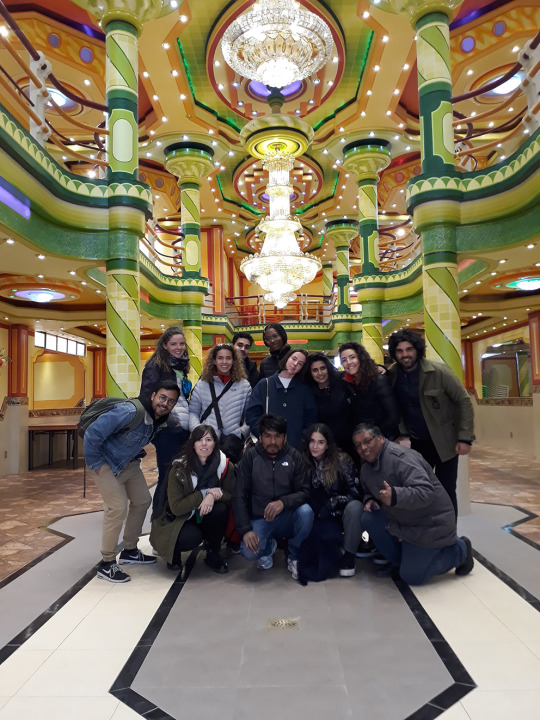
Portable Cholets, the AA Visiting School El Alto 2019 | Photo © Lemonot
2 notes
·
View notes
Text
[ad_1]
As POPSUGAR editors, we independently select and write about stuff we love and think you'll like too. If you buy a product we have recommended, we may receive affiliate commission, which in turn supports our work.
Kate Middleton made a symbolic fashion statement at the May 10 opening of the Glade of Light memorial, which commemorates victims of the 2017 terrorist attack at Manchester Arena. The British royal wore earrings accented with bee and honeycomb charms as a nod to the long-standing emblem of Manchester. The worker bee symbolizes the English city's hard-working past and came to represent unity following the bombing at an Ariana Grande concert held there five years ago. Grande herself got a bee tattoo behind her ear in solidarity with the 22 people who died.
Middleton's earrings were custom-made by London-based luxury jeweler Vanleles Diamonds for the occasion, as confirmed by Page Six. An upgraded version of the brand's Nile hoop earrings, they are made from yellow gold, enamel, diamonds, and sapphires, and each is embellished with bee and honeycomb charms. Seeing as they were bespoke for the memorial's dedication, it's clear that the duchess intended to show support for the victims and their families.
As for the rest of Middleton's ensemble, she revisited her personal archives, as she often does, rewearing the blue-gray Michael Kors coat-dress she first donned on her royal tour of Australia in 2014. She completed her look with a navy top-handle Polène bag, matching suede Rupert Sanderson pumps, and a lapis-lazuli pendant necklace by British jeweler Astley Clarke.
Ahead, take a closer look at Middleton's latest commemorative style moment and shop her accessories.
window.fbAsyncInit = function()
FB.init(
appId : '175338224756',
status : true, // check login status
xfbml : true, // parse XFBML
version : 'v8.0'
);
ONSUGAR.Event.fire('fb:loaded');
;
// Load the SDK Asynchronously
(function(d)
var id = 'facebook-jssdk'; if (d.getElementById(id)) return;
if (typeof scriptsList !== "undefined")
scriptsList.push('src': 'https://connect.facebook.net/en_US/sdk.js', 'attrs': 'id':id, 'async': true);
(document));
[ad_2]
Source link
0 notes
Text
Keir Starmer pushes to scrap one-member-one-vote for Labour leader and return power to MPs
Keir Starmer pushes to scrap one-member-one-vote for Labour leader and return power to MPs
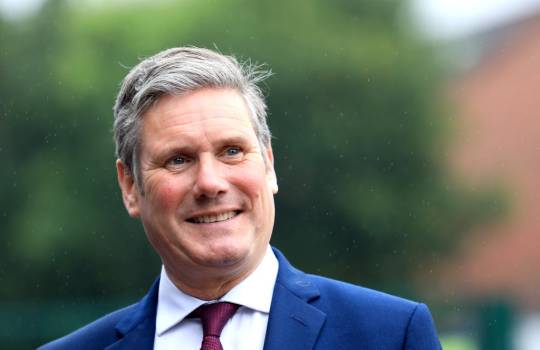

Keir Starmer is pushing to scrap Labour‘s one-member-one-vote approach to party leadership elections and move to an “electoral college” system dominated by MPs – in a move that would likely lock the party’s left wing out of power for good.
Labour’s ruling national executive is expected to hear the plans at a meeting on Friday evening, with the leadership’s intention to put the change to the party’s annual conference next week.
Under the system, the vote for leader would be split one third between MPs, one third between unions, and one third between constituency Labour parties – in contrast to now where all party members get a single equal vote.
The change, which critics say is a factional move to permanently disempower opponents of the leadership, would return Labour to a similar system to the one used until 2014, when one-member-one-vote (OMOV) was introduced by Ed Miliband.
Labour MPs, most from from the left of the party, broke ranks on Tuesday ahead to slam the proposal – warning that it would undermine party democracy.
“As a Labour MP, I should have no greater say in leadership elections than other Labour members,” said Rachael Maskell, a shadow culture minister on Sir Keir’s front bench.
“The members are ultimately the Party and they should equally elect their leader. OMOV is the most democratic system. Let’s respect our members, let’s respect Party democracy.”
Veteran left-winger Jon Trickett said on Tuesday night that any such move was “a wrong headed backwards step which ought to be rejected” while former shadow chancellor John McDonnell said it was “critical Labour MPs make it clear they reject this proposal and reassert right of members to elect leader”.
Keir Starmer’s office and Labour’s press operation declined to comment on the proposals, which are yet to be formally published but which have been widely briefed.
No Labour MPs have yet publicly endorsed the plan or made arguments for it, but many moderates privately support it as a way of marginalising their factional opponents. Some commentators have proposed various justifications for removing the vote from members, such as that MPs represent non-member constituents, that members cannot be trusted, or that the party leader needs to be on good terms with MPs.
The party leadership also plans to change the rules to make it harder for party members to challenge unpopular MPs with a “trigger ballot”. Most political parties in the UK have members select their candidate for MPs before the election, but Labour sets a higher bar for challenges to prevent members from ousting MPs and ruining their careers.
Under Jeremy Corbyn’s leadership the rules were changed so that an MP could be challenged for the party’s nomination if one third of either party branches or affiliate branches in a constituency voted in favour of it. However, the LabourList website reports that the leadership wants to raise this bar to a majority rather than one third.
Sir Keir was elected leader on a left-wing platform aping Jeremy Corbyn’s 2017 manifesto, but has quickly shed many of his his campaign promises and appointed Blairites to key positions in the party.
UK news in pictures
Show all 50
1/50UK news in pictures
UK news in pictures
20 September 2021
Florist Judith Blacklock puts the finishing touches to a floral carousel installation in Halkin Arcade, which she has designed with Neill Strain for the Belgravia in Bloom festival, running from September 20-26, in London
PA
UK news in pictures
19 September 2021
Bubbles surround Manchester United’s Cristiano Ronaldo before the match against West Ham at London Stadium
Action Images/Reuters
UK news in pictures
18 September 2021
Children take part in the Settrington Cup Pedal Car Race as motoring enthusiasts attend the Goodwood Revival, a three-day historic car racing festival in Goodwood, Chichester,
Reuters
UK news in pictures
17 September 2021
Hugo, 7, from London rides past a 4×7 metre rainbow arch, made entirely of recycled aluminium cans, which has been installed by recycling initiative ‘Every Can Counts’, in partnership with The City of London Corporation in front of St Paul’s Cathedral in London, to encourage members of the public to recycle their drinks cans ahead of recycling week, which starts on 20 September
PA
UK news in pictures
16 September 2021
Sheikeh MOhammed bin Zayed Al Nahyan, leader of Abu Dhabi, leaves Downing Street after meeting with Boris Johnson
PA
UK news in pictures
15 September 2021
Children pose by ice sculptures depicting people collecting water by charity Water Aid to show the fragility of water and the threat posed by climate change in London
AFP/Getty
UK news in pictures
14 September 2021
Heavy rain covers the A149 near Kings Lynn in Norfolk
PA
UK news in pictures
13 September 2021
Luke Jerram’s ‘Museum of the Moon’ at Durham Cathedral
PA
UK news in pictures
12 September 2021
Inspirational young fundraiser Tobias Weller crosses the finish line, near his home in Sheffield, as he completes his latest epic feat where he swam and triked his way to the end of his “awesome” year-long Ironman Challenge. This is the third challenge Tobias, who has cerebral palsy and autism, has completed, raising more than £150,000 for his school and Sheffield Children Hospital’s charity
PA
UK news in pictures
11 September 2021
British player Emma Raducanu, holds up the US Open championship trophy winning the women’s singles final of the US Open in New York
AP
UK news in pictures
10 September 2021
People paddle board during a misty morning in Ullswater, the second largest lake in the Lake District, Cumbria
PA
UK news in pictures
9 September 2021
Troops from Wiltshire based 4 Armoured Close Support Battalion Royal Electrical and Mechanical Engineers during final inspection at Wellington Barracks in London, ahead of providing troops for the Queen’s Guard
PA
UK news in pictures
8 September 2021
Workers cross London Bridge during the morning rush hour in London
Reuters
UK news in pictures
Mixing it up: Painting it up press view in London
A gallery employee poses for photographers next to a painting entitled “Prairie” by British artist, Louise Giovanelli during the exhibition ‘Mixing it up: Painting it up’ at the Hayward Gallery in London
EPA
UK news in pictures
6 September 2021
Traders in the Ring at the London Metal Exchange, in the City of London, after open-outcry trading returned for the first time since March 2020, when the Ring was temporarily closed due to the pandemic
PA
UK news in pictures
5 September 2021
People enjoy the warm weather on Sandbanks beach, Poole
PA
UK news in pictures
4 September 2021
Demonstrators from Animal Rebellion and Nature Rebellion protest in Trafalgar Square in London.
PA
UK news in pictures
3 September 2021
South Africa’s Ntando Mahlangu (centre) wins the Men’s 200 metres T61 Final ahead of second placed Great Britain’s Richard Whitehead at the Tokyo 2020 Paralympic Games
PA
UK news in pictures
2 September 2021
A young common seal on the beach at Horsey Gap in Norfolk, as hundreds of pregnant grey seals come ashore ready for the start of the pupping season.
PA
UK news in pictures
1 September 2021
Goldfinches fighting over food in a garden in Strensham, Worcestershire
PA
UK news in pictures
31 August 2021
Gold Medallist Sarah Storey of Britain celebrates on the podium
Reuters
UK news in pictures
30 August 2021
Extinction Rebellion protesters hold a a tea party on Tower Bridge in London
EPA
UK news in pictures
29 August 2021
A police office tussles with a demonstrator on Cromwell Road outside the Natural History Museum during a protest by members of Extinction Rebellion in London
PA
UK news in pictures
28 August 2021
Members of the British armed forces 16 Air Assault Brigade walk to the air terminal after disembarking a Royal Airforce Voyager aircraft at Brize Norton, Oxfordshire
POOL/AFP/Getty
UK news in pictures
27 August 2021
Fabio Quartararo crashes during a MotoGP practice session at the British Grand Prix, Silverstone Circuit
Action Images via Reuters
UK news in pictures
26 August 2021
An Extinction Rebellion activist holds a placard in a fountain surrounded by police officers, during a protest next to Buckingham Palace in London
Reuters
UK news in pictures
25 August 2021
Gold Medallist Great Britain’s cyclist, Sarah Storey, celebrates after winning the Women’s C5 3000m Individual Pursuit Final at the Tokyo 2020 Paralympic Games. It was her 15th Paralympic gold
Reuters
UK news in pictures
24 August 2021
A demonstrator dressed as bee during a protest by members of Extinction Rebellion on Whitehall, in central London
PA
UK news in pictures
23 August 2021
Former interpreters for the British forces in Afghanistan demonstrate outside the Home Office in central London
AFP/Getty
UK news in pictures
22 August 2021
Police officers form a line in front of the entrance to the Guildhall, London, where protesters have climbed onto a ledge above the entrance during an Extinction Rebellion stage a protest
PA
UK news in pictures
21 August 2021
People take part in a demonstration in solidarity with people of Afghanistan, in London
Reuters
UK news in pictures
20 August 2021
People zip wire across the sea from Bournemouth pier towards the beach.
PA
UK news in pictures
19 August 2021
Supporters of Geronimo the alpaca gather outside Shepherds Close Farm in Wooton Under Edge, Gloucestershire
PA
UK news in pictures
18 August 2021
Former Afghan interpreters and veterans hold a demonstration outside Downing Street, calling for support and protection for Afghan interpreters and their families
PA
UK news in pictures
17 August 2021
Military personnel board the RAF Airbus A400M at RAF Brize Norton in Oxfordshire, where evacuation flights from Afghanistan have been landing
Reuters
UK news in pictures
16 August 2021
Labour leader Sir Keir Starmer takes part in a minute’s silence at Wolverhampton police station for the victims of the Plymouth mass shooting last week
PA
UK news in pictures
15 August 2021
2Storm, a ten-metre tall puppet of a mythical goddess of the sea created by Edinburgh-based visual theatre company Vision Mechanics, makes its way alongside the seafront at North Berwick, East Lothian, during a performance at the Fringe By The Sea festival
PA
UK news in pictures
14 August 2021
A woman and two young girls look at floral tributes in Plymouth where six people, including the offender, died of gunshot wounds in a firearms incident
PA
UK news in pictures
13 August 2021
Forensic officers in the Keyham area of Plymouth where six people, including the shooter, died of gunshot wounds in a firearms incident on Thursday evening
PA
UK news in pictures
12 August 2021
Children ride horses in the River Eden in Appleby, Cumbria, during the annual gathering of travellers for the Appleby Horse Fair
PA
UK news in pictures
11 August 2021
Stella Moris (left) reacts after talking to the media outside the High Court in London, following the first hearing in the Julian Assange extradition appeal, n London, following the first hearing in the Julian Assange extradition appeal. The US government has won the latest round in its High Court bid to appeal against the decision not to extradite Julian Assange on espionage charges
PA
UK news in pictures
10 August 2021
Students react after they receive their A-Level results at the Ark Academy, in London
Reuters
UK news in pictures
9 August 2021
The final athletes from Great Britain arrive home including Jason Kenny, Laura Kenny and Katie Archibald (front left-right) at Heathrow Airport, London following the Tokyo 2020 Olympic Games
PA
UK news in pictures
8 August 2021
Great Britain’s Laura Kenny during the closing ceremony of the Tokyo 2020 Olympic Games at the Olympic stadium in Japan
PA
UK news in pictures
7 August 2021
People from the Glasgow Southside community take part in the Govanhill Carnival, an anti-racist celebration of pride, unity and the contributions immigrants have made to the community in Govanhill, at Queen’s Park, Glasgow
PA
UK news in pictures
6 August 2021
Chijindu Ujah of Britain, Zharnel Hughes of Britain, Richard Kilty of Britain and Nethaneel Mitchell-Blake of Britain celebrate winning silver as they pose with Asha Philip of Britain, Imani Lansiquot of Britain, Dina Asher-Smith of Britain and Daryll Neita of Britain after they won bronze in the women’s 4 x 100m relay during Olympic Games Day 14
Getty
UK news in pictures
5 August 2021
A protester places flowers on a photograph of an executed man during a demonstration organised by supporters of the National Council of Resistance of Iran (NCRI) to protest against the inauguration of Iran’s new president Ebrahim Raisi in central London
AFP via Getty
UK news in pictures
4 August 2021
England’s Joe Root looks on as India’s KL Rahul doesn’t make it to a catch during day one of Cinch First Test match at Trent Bridge, Nottingham
PA
UK news in pictures
3 August 2021
Great Britain’s Laura Kenny and Jason Kenny with their silver medals for the Women’s Team Pursuit and Men’s Team Sprint during the Track Cycling at the Izu Velodrome on the eleventh day of the Tokyo 2020 Olympic Games in Japan
PA
UK news in pictures
2 August 2021
Great Britain’s Charlotte Worthington competes during the Women’s BMX Freestyle Final at the Tokyo Olympics
PA
The proposed rule change for electing the party leadership is expected to effectively lock the left out of the leadership in future because the right wing of the Labour Party dominates the parliamentary Labour Party (PLP). The rule change to make it harder to challenge sitting MPs would “double lock” the system so that MPs remained overwhelmingly aligned to the party’s moderate, right or centre.
If the rule change is to happen the proposal it must first get through the NEC and conference. Left-wing NEC members say it should be ruled out of order because it was “sprung” on them at the last minute. Passing the motion would also require the support of moderate-led unions, including Unison, USDAW and the GMB.
It is currently unknown whether the leadership could get the plan through the party’s conference. While the party’s left has still come top in all internal elections since Sir Keir was elected leader, tens of thousands of mostly left-leaning members are thought to have left the party, with more suspended or excluded by the party’s staff ahead of the annual meeting.
The current one-member-one-vote system was originally introduced on the initiative of Labour’s right wing to make it harder to elect left-wingers to the leadership, but the system’s original proponents miscalculated their own popularity and ended up with Jeremy Corbyn.
Source link
0 notes
Text
Notable & Quotable
“Africa can feed herself. Even without using any modem farming techniques such as pesticides and with only the most casual approach to maintaining the soil, the 51 countries of Africa presently have the potential to feed a population three times as large as that now living in the continent, even allowing for the fact that 47 percent of the land surface is useless for crops.”
n A Food and Agricultural Organization study cited in a West Africa editorial Dec 14, 1981; p. 2959.
******************************
“Despite noises being made about the exploitation of the people, it is the STATE, as the Chief Vanguard, and her so-called Public Servants, Civil Servants which actually exploit others in the country. The money used in buying the cars for Government officials, the cement for building estates and other Government bungalows which workers obtain loans to buy, the rice workers eat in their staff canteens, the soap, the toothpaste, textiles cloth which workers buy under the present distribution system all come from the farmers' cocoa and coffee money.
This STATE-MONOPOLY CAPITALISM has been going on since the days of the colonial masters and even our own Governments after independence have continued the system.
The farmers realizing this naked exploitation decided unconsciously that they would no longer increase cocoa and coffee production, they would not increase food production and any other items which the State depends on for foreign exchange. In effect, there will be no surplus for the State to exploit.”
Yaw Amoafo (The Daily Graphic (Feb 17, 1982; p.3).
*****************************
"Despotism and kleptocracy do not inhere in the nature of African cultures or in the African character; but they are now rife in what was once called British colonial Africa, notably West Africa."
n Lord Peter Bauer, the late and famous British Economist. Reality and Rhetoric: Studies in Economics of Development. Cambridge: Harvard University Press, 1984; p.104.
******************************
"The trouble with Nigeria is simply and squarely a failure of leadership. There is nothing basically wrong with the Nigerian character. There is nothing wrong with the Nigerian land or climate or water or air or anything else. The Nigerian problem is the unwillingness or inability of its leaders to rise to the responsibility, to the challenge of personal example which are the hallmarks of true leadership . . . We have lost the twentieth century; are we bent on seeing that our children also lose the twenty-first? God forbid!"
n Chinua Achebe (in The Trouble With Nigeria. Enugu: Fourth Dimension Press, 1985; p.3).
******************************
“When, if ever, black people actually organize as a race in their various pulation centers, they will find that the basic and guiding ideology they now seek and so much need is embedded in their own traditional philosophy and constitutional system, simply waiting to be extracted and set forth.
n Chancellor Williams The Destruction of Black Civilization. Chicago: Third World Press, 1987; p.161)
******************************
“Abuse of black people by Arabs, especially Syrians and Lebanese, has been ignored for too long. The painful fact is that this abuse occurs under our noses in African towns and cities where they have come to enjoy our hospitality. It is high time Arabs were made officially aware of this and reminded of the black solidarity they have enjoyed for years in their conflict with Israel.
In the late 1970s, it was an open secret in New York that Arab diplomats never invited their black counterparts to their receptions.
Kwaku O. Sarpong of Ghana (West Africa, March 7, 1988; p.27).
******************************
"Here in Lesotho, we have two problems: rats and the government," said a tribal chief in a rural farming community.”
n A tribal chief in a rural farming community in Lesotho (International Health and Development, March/April 1989; p. 30).
******************************
“Those who feel that the citizen should not continue to fight against monolithicism, political Illiberalism, tribalism, patrimonialism, bureaucratic inefficiency, public graft and corruption are at the end of the day the true enemies of Kenya (and indeed all of Africa). And they probably need to learn the lesson, often too bitterly learnt elsewhere, that those who do not accept the force of argument have often had to give in to the argument of force.”
n Wachira Nzina and Chris Mburu in The Nairobi Law Monthly, No. 31. March 1991.
******************************
“Most African regimes have been so alienated and so violently repressive that their citizens see the state as enemies to be evaded, cheated and defeated if possible, but never as partners in development. The leaders have been so engrossed in coping with the hostilities, which their misrule and repression has unleashed that they are unable to take much interest in anything else including the pursuit of development. These conditions were not conducive to development and none has occurred. What has occurred is regression, as we all know only too well.”
n Claude Ake, Nigerian Scholar in). "How Politics Underdevelops Africa," in The Challenge of African Economic Recovery and Development, ed. Adebayo Adedeji, Owodumi Teriba, and Patrick Bugembe. Portland, OR: Cass, 1991; p.14.
******************************
“To solve Zaire's economic crisis, we send three sacks of angry bees to the governor and the president. And some ants which really bite. Maybe they eat the government and solve our problems."
Amina Ramadou, a peasant housewife (The Wall Street Journal, Sept 26, 1991; p. A14).
******************************
“Foreign aid has done more harm to Africa than we care to admit. It has led to a situation where Africa has failed to set its own pace and direction of development free of external interference. Today, Africa's development plans are drawn thousands of miles away in the corridors of the IMF and World Bank. What is sad is that the IMF and World Bank "experts" who draw these development plans are people completely out of touch with the local African reality.”
n Dr. Joshat Karanja, a former Kenya member of parliament, in New African, June 1992, 20.
******************************
“One of the most urgent matters for Nigerians to address when they settle down to debate the National Question is the issue of collaboration by professionals and technocrats with corrupt and repressive regimes. We must devise effective sanctions against our lawyers and judges and doctors and university professors who debase their professions in their zealotry to serve as tyranny's errand-boys, thus contributing in large measure to the general decay of honesty and integrity in our national life.
n Chinua Achebe in African News Weekly (1 October 1993, 32).
******************************
"I believe the worst form of civilian government is better that the most benevolent military regime."
n Chuba Okadigbo, former chairman of the Foreign Relations Committee of Nigeria's dissolved Senate (The New York Times, Dec 2, 1993; p.A3).
******************************
"Africa's biggest problem today lies with the leadership. They are so removed from the people that they are looked upon as foreigners. They are driven by self-interest, so excessive that their peoples' interests are forgotten -- hardly different from the colonial masters"
n John Hayford (New African, April, 1994; p.7).
******************************
1“The problem in Africa is precisely that there is no state to speak of. What exists are ramshackle gangs, presided over by political thugs and military adventurists, generals who have never been to war, and rickety old men who lack vision, who simply pretend to be governing, talk less of ruling, a society. In no African social formation has this body, by whatever name it goes, been able to operate as a state.“ From “Pan-Africanism: Agenda for African Unity in the 1990s.”
n Julius O. Ihonvbere, in a Keynote address at The All-African Student's Conference, University of Guelph, Guelph, Ontario, Canada, May 27, 1994.
******************************
"In my view, Ghana's economic malaise is not the result of lack of opportunities or of resource. Ghana, like the rest of Africa, with the possible exception of South Africa and a few others, suffers from the affliction of dishonest leadership . . .I have put the emphasis on bad and corrupt leadership as the root cause of our economic woes. I make no apologies for this because we all know what is going on. On my part, I am quite disappointed that we in Parliament have not been courageous to say nay when this way is necessary."
n The Late and Hon. Hawa Yakubu-Ogede, former MP, Bawku (The Ghanaian Voice, Feb 12, 1995; p.8).
******************************
"Nigeria, the comatose giant of Africa, may go down in history as the biggest country ever to go directly from colonial subjugation to complete collapse, without an intervening period of successful self-rule. So much promise, so much waste; such a disappointment. Such a shame. Makes you sick."
Linus U.J. Thomas-Ogboji (The African News Weekly (May 26, 1995; p.6).
******************************
“Your modern politics [in Africa] is dictated by personal greed, power and suppression of thought. Our forefathers believed in participatory democracy. They saw politics as a way to liberate and build nations . . . The "modern" school [in Africa] taught us to read and write but not where we came from or where we are going to. The schools again teach us how to acquire money but not how wealth is created. We want to bring people's awareness back to their roots . . .
The chief represents the people. Without the people there is no chief. They have one goal. The people make the rules and the laws and both the chief and the people adhere to the same rules . . . We as a people have deserted our traditions in favor of [foreign ones]. We need to go back in time and learn every aspect of our traditions that served our forefathers well.”
n Nana Osei-Bonsu, Asantefuohene, a traditional chief in African Monthly, July, 1995; p.10.
******************************
“Apart from the corruption, the army under Captain Valentine Strasser government (of Sierra Leone) has become totally incompetent, and is conducting a war against the people. The countryside is nothing but destruction, upon destruction. Whole towns and villages have been destroyed."
n Ibrahim Ibn Ibrahim, a Sierra Leonian journalist in Akasanoma, July 31-Aug 6, 1995; p.38).
******************************
“A critical look at contemporary African military would bring one's eye closer to tears, and one's mind nearer to insanity. The caliber of people found in the military is an obloquy to the belated institution. Today, soldiers of most African countries are known as brutes, bullies and buffoons. Soldiers are always supposed to be in the barracks, either training or doing something profitable. But in Africa, the case is totally different and appalling. Come to Accra and you will see soldiers moving about, wielding guns, pistols, harassing citizens and causing needless trouble. Go to Lome and you will see them. Go to Burkina Faso. To Lagos. To Kinshasa. O! what a degradation of the military! Ghana has seen varied types of uncouth and undisciplined soldiers."
n Prince Oduro (Free Press, Aug 4-10, 1995; p.4).
******************************
"No military coup in Africa has produced a vibrant economy to replace the bankrupt one it set out to redeem. In almost every case, the army boys have imbibed the ways of the corrupt politicians they pushed out of office and even taken their crookedness to a higher level."
n Editorial, African News Weekly, Sept 1, 1995; p.7.
******************************
"I have written his article to register my protest and revulsion at the way leaders of African nations have been disgracing the black race. Just look at the way Ken Saro-Wiwa and co. were hanged like pigs without even the benefit of an appeal . . . In all hue and cry, what is both infuriating and irritating is the speed with which African countries together with their leaders are quick to blame all that go wrong on the continent on our supposed "Enemy" - the West. This sad culture is what has propelled me to protest with all the venom that I can muster . . . Why can't we accept our responsibilities as a race (black race), face the music for our deeds and always tend to pass the buck?
It is not only on the political field that our good-for-nothing so-called teachers blame the Western World for our own mistakes. Take the case of Ghana, for example. We always hear of the often quoted phrase "the unjust world economic order" being the cause of all our problems. Don't we use the same economic textbooks as the Western world? . . .All that I am saying is, we don't deserve to be treated like beggars, because we are not using our brains at all (that is, if we have brains anyway). The sage says charity begins at home."
Kwesi Obeng, UST university student (The Ghanaian Chronicle, Jan 21, 1996; p.4).
******************************
“We have had to go back to our roots. We have to go back to our traditional ways of solving our problems, traditional ways of working together. Otherwise, Boosaaso a port in war-torn Somalia would not have peace.”
n Gen. Mohamed Abshir, Boosaaso's de facto administrator in The Washington Post, March 3, 1996; p.A29.
******************************
“All symbols of military authority must be removed from our midst. Those arrogant photographs that desecrate public spaces, schools, hospitals, offices, even courts of justice. Street names, also, change them all. Remove them. Remove them by stealth, remove them openly, by cunning, remove them by bribery, remove them forcibly, remove them tactfully, use whatever method is appropriate, but remove them. I call on all who are resolved to play a role in our mutual liberation to participate in this exercise of psychological release, or mental cleansing and preparedness.
n Wole Soyinka – in The Open Sore of a Continent. New York: Oxford University Press.1996; p.59).
******************************
“The [Nigerian] military has perfected the use of intimidation and disinformation to keep a passive population calm. In the process, a timid population became quiet and in some cases conspiratorial and accommodating of dictators for too long. The result is what you see today: a bunch of idiots terrorizing the nation, intimidating opponents and harassing dissidents. It is an equivalent of gangs taking over a whole town. Imagine John Gotti or Al Capone as President of the United States. Well, welcome to the reign of thieves and vagabonds, welcome to our Nigeria today, a gangster's paradise."
Ikenna Anokwute in African News Weekly (Sept 16-22, 1996; p.6).
******************************
“How safe is the state of Ghana in the hands of Rawlings and his gangsters at this critical moment when they are seeking the mandate of the people to continue their corruption, misrule, contempt for public opinion, and disregard to public property. Indeed, the record books are overflowing with evidence of Rawlings' wanton misuse of state property and abuse of power.
Editorial, Free Press (4-10 October 1996, 6).
******************************
"Many a time we have wondered if the so-called African leaders sometimes lack the capacity to think and understand the ramifications of their actions . . . After all the bloodshed in Rwanda you would think we have learnt a lesson but no! Idiocy of our power-hungry leaders seems to triumph over pragmatism and common sense. The rationale for the current fighting defies any logic . . . The world must be getting tired of us (Africans) giving our self-inflicted tragedies galore. We seem to lack any sense of urgency to handle problems in an expedient manner devoid of bloodshed. Lord Have Mercy!”
(Ghana Drum editorial, November, 1996; p.2).
******************************
“African Renaissance demands that we purge ourselves of the parasites and maintain a permanent vigilance against the danger of entrenchment in African society of this rapacious stratum with its social morality according to which everything in society must be organized materially to benefit the few . . . The call for an African Renaissance is a call to rebellion. We must rebel against the tyrants and the dictators, those who seek to corrupt our societies and steal the wealth that belongs to the people. We must rebel against the ordinary criminals who murder, rape and rob, and conduct war against poverty, ignorance and the backwardness of the children of Africa."
Thabo Mbeki, former president of South Africa in The Nigerian, October 1998; p.2).
******************************
“The turmoil in Africa today – famine, military coups and so on – is partly the result of African leaders who fought for independence but then enjoyed the fruits of their power and forgot about the people.”
n Tony Yengeni, chief whip of the African National Congress (ANC) of South Africa, The Washington Times, May 6, 1999, A14).
******************************
"Your murderous military campaigns and strong-arm tactics have robbed African children of their youth, robbed African countries of hope and, in many instances, sentenced African people to lives no better than those of animals.” Wiping tears from her eyes, she said: “I don’t care what they do to me. The truth had to be told.”
n Anne-Marie Kabongo from Congo DR (The Washington Post (Sept 6, 1999; p.A21).
******************************
“I heard we have a new government. It makes no difference to me. Here we have no light [electricity], we have no water. There is no road. We have no school. The government does nothing for us.”
Simon Agbo, a farmer in Ogbadibo, south of Makurdi, Benue state capital in Nigeria in The Washington Times, Oct 21, 1999; p.A19.
******************************
“Most educated Nigerians, who are good copycats of foreign behavioral patterns, will like to flaunt their Euro-American amoral (and in fact immoral) tendencies in our face. Not even the decadence of those societies, despite their wealth and technologies, will make our elites have a rethink about those systems.
The quality of our elitism is so appallingly apelike that they are quite unable to distinguish a substance from a label. Whatever is out there is simply repeated here root, stalk and leaf. It is a shame today that we are being taught by Europe to breast-feed our babies. Today, almost every Nigerian woman wears a bleached skin and the curly hair strand of another race group.
It is time that we have a rethink. And we ask our elites to ship in or ship out."
Reverend S.J. Esu, a Nigerian pastor (Vanguard, Lagos, Aug 5, 1999. Web posted at www.allafrica.com).
******************************
"The Winds of Change has blown and gone, and, at the end of the century, not a single African country is in bondage to any power. But hundreds of millions of Africans have been in bondage since the first day of uhuru (freedom)."
n Jon Qwelane, a black South African journalist, (The Sunday Times, Nov 1999; p. 24).
******************************
“Billions of dollars of public funds continue to be stashed away by some African leaders – even while roads are crumbling, health systems have failed, school children have neither books nor desks nor teachers and phones do not work.”
Former U.N. Secretary-General Kofi Annan (The African-American Observer, April 25 – May 1, 2000; p.10).
******************************
"Africa today is politically independent and can be said to have come of age but apart from Thabo Mbeki and Yoweri Museveni, we are sorry to openly admit that most of our leaders have nothing to offer except to be effective managers for the IMF and serve as footnotes to neo-colonialism. Most of the leaders in Africa are power-loving politicians, who in uniform or out of uniform, represent no good for the welfare of our people. These are harsh words to use on men and women who may mean well but lack the necessary vision and direction to uplift the status of their people.”
n Editorial, The Independent, Ghana, July 20, 2000; p.2.
******************************
“We Americans are so desperate for good news on the continent of Africa that it is almost irresistible when we find a good man in Africa. The only way we seem to be able to identify success in Africa is through personalization.”
n Edward P. Brynn, the former American Ambassador to Ghana quoted by Blaine Harden, “The U.S. Keeps Looking for a Few Good Men,” The New York Times, August 27, 2000, Section 4; p.1)
. ******************************
“Are we hanging too much on Obasanjo? That is clearly a danger we face. We have to invest in institution building – the military, the legislature, getting a handle on corruption. But we cannot do any of this stuff on the cheap. It has got to be sustained beyond this president and beyond Obasanjo.”
J. Stephen Morrison, who worked at the State Department quoted by Blaine Harden, “The U.S. Keeps Looking for a Few Good Men,” The New York Times, August 27, 2000, Section 4; p.1)
******************************
"What baffles me is that even the money recovered from the late General Sani Abacha has been stolen. If you recover money from a thief and you go back and steal the money, it means you are worse than the thief."
Uti Akpan, a textiles trader in Lagos The New York Times, Aug 30, 2000; p.A10.
*****************************
"When I listen to African leaders at international gatherings I cannot but feel ashamed at their quickness to blame the whiteman for all the woes of Africa. This, to my mind, is nothing but a childish case of passing the buck.
They blame the whites for the impoverishment of Africa outwardly to the hearing of the world and go indoors to cabinet and presidential offices to negotiate lopsided agreements with these foreigners. I am sure Europeans amuse themselves in their drawing rooms with how big-mouthed but small-brained African leaders are.
It will be funny if, in this millennium, we continue to blame the whiteman for our woes when we are actually the ones responsible for our backwardness."
Adedeji Adeyemi of Kaduna (Nigeria), inThis Day, Vol.6, No.1900, July 5, 2000; p.13).
******************************
"For many years, the continent’s problems and position as the poorest on Earth have been attributed to colonialism and the exploitative and repressive trade between the developed North and yet to be developed South. However, these excuses have become obsolete in the recent times and as Kofi Annan pointed out to the Heads of states at the Lome Summit (July 2000) that most of the problems can be placed at the doorsteps of its leaders who have failed over the years to pursue policies that would engender development. Mr. Annan was only giving credence to an opinion which many open minded analyst of the African political scene have long held, but which have been suppressed for good reasons by those who wield political power in the continent."
Editorial, The Mirror, July 15, 2000; p.12.
******************************
“If the twentieth century taught us anything, it is that large-scale centralized government does not work. It does not work at the national level, and it is less likely to work at the global level”.
Kofi Annan, U.N Secretary-General (The New York Times, Sept 13, 2000; p.A12).
******************************
"If you had told me a year ago that I would be in the streets rioting, I would have said you were insane. But then again, if you told me I would be praying to God to deliver us from [President] Robert Mugabe a year ago, I would have said the same thing. I am not a violent man; I am not an especially religious man. But whatever it takes for Zimbabwe to finally be rid of this man, I am willing to do."
Josiah Makawa, a 24-year-old warehouse worker in Harare (The Washington Post, Nov 23, 2000; p.A45).
******************************
“My family has not eaten meat in months. Sometimes we eat only raw vegetables for supper because we have no money to buy [fuel] for cooking. This government has had 20 years to do something about the land problem and they did nothing. Now that's all they want to talk about. No one is listening."
Josiah Makawa, a warehouse worker in Harare, Zimbabwe (The Washington Post, November 23, 2000; p.A45).
******************************
“Nigeria's foreign debt profile is now in the region of $25-$30 billion, but the president of the Institute of Chartered Accountants of Nigeria, ICAN, Chief Jaiye K. Randle, himself an eminent accountant and social commentator has now revealed that individual Nigerians are currently lodging far more than Nigeria owes in foreign banks. With an estimate he put at $170 billion it becomes immediately clear why the quest for debt forgiveness would remain a far fetched dream.”
Laolu Akande, a veteran Nigerian freelance journalist, (http://nigeriaworld.com/columnist/laoluakande/articles.html)
******************************
“Africans want change because there is so much suffering here. But Africans are above all else devoted to their ancestors, and they do not want to betray that by becoming something that they are not.”
Patekile Holomisa, an inkhosi (chief) and head of the Congress of Traditional Leaders in South Africa in the The Washington Post, Dec 18, 2000; p.A1.
****************************
“The ANC [government of South Africa] wants to transplant customs from other countries here, and that will destroy the Zulu nation and all that we value. We are poor, but do you see any beggars in the streets like you do in the cities? The inkhosi (traditional chief) makes sure that we are all provided for. The municipality will make beggars of us. When I have a problem, I can go see the inkhosi any time, day or night. I don't need an appointment. They can have their civilization, brother.”
Benjamin Makhanaya in The Washington Post, Dec 18, 2000; p.A1.
******************************
"How can a politician decide what is right for my people better than myself or my son, who has been preparing his entire life for the moment when he must lead? I am not running for re election. This is not my career. It is my duty. I have served my people for 48 years and will continue to serve them until I die."
Mzunjani Ngcobo, tribal chief of Quadi in South Africa The Washington Post, Dec 18, 2000; p.A1.
******************************
"People cannot eat slogans, rhetoric or history; liberty must bring tangible benefits to the oppressed . . .This is also relevant in South Africa, (describing Mugabe's government as a "promising transformation project turned horrible." In the sharpest condemnation of recent developments in Zimbabwe by a South African leader, Mr. Vavi placed the blame for Zimbabwe’s troubles on the repression of critics and "near-dictatorial governance."
n Zwelinzima Vavi, head of the Congress of South African Trade Unions, at a seminar in Johannesburg, assessing the lessons of Zimbabwe for its neighbors (The New York Times, Feb 25, 2001)
.******************************
"As hopes wither and economies flounder, a new generation of Africans are turning their backs on the continent's old guard political leadership. From Zimbabwe to Uganda, Angola to Kenya, post colonial leaders and pre-independence political parties are falling from grace. Desperately holding onto power by political manipulation and old western-bashing slogans of the 1960s, they blame their nation's financial ills on foreign exploitation rather than on their own failings -- but with a new generation of educated African citizens, such transparent rabble rousing rings increasingly hollow.
Milan Vesely, in African Business, April 2001; p.41.
******************************
"How can we allow these MMD crooks to come to our villages to ask for more years to complete their destruction of our mother Zambia? . . . How can I lend my support to state-propelled hooliganism, vandalism, corruption and scandals? I ask Zambians to effect citizen's arrest, manhandle and cage all MMD big corrupt thieves into places designed for crooks and dangerous national law breakers because the police had failed to arrest them. All of them must be placed under wanted list by the people as the police have failed the nation lamentably."
Chief Bright Nalubamba of the Ila people of Namwala (The Post, Lusaka, May 29, 2001).
******************************
"You have a president who is a retired military man, a director of national security who is a retired military man, a defense minister who is a retired military man and a director of the State Security Service (SSS) or national intelligence, who is an ex-military man. Apart from the president and all the key office-holders in the land being of military background, we don't have enough elbow room to begin to talk about subordinating this system to civilian control."
Rev. Matthew Hassan Kuka, a member of the Oputa Commission set up to investigate past human rights abuses (The Washington Times, Nov 1, 2001; p.A18).
******************************
"We have been in terror for 10 years. We have destroyed our towns. We have killed each other. We have used all sorts of weapons against each other, except perhaps airplanes."
Abdiqassim Salad Hassan, President of Somalia's transitional government (The New York Times, Nov 4, 2001; p.A4).
******************************
“The more you read about Africa, the more it becomes evident that African leaders are a strange lot. These guys are worse than space aliens. And somebody wants me to believe our problem is the white man. Rubbish. I posit that colonial rule was better. Obasanjo, the Nigerian leader regards himself as the best black leader in the world today. Maybe Mandela is white. This is why Obasanjo gallivants all over the globe. Let's concede that perhaps he is. Then Africa is really in trouble. If the best rules like they are doing in Nigeria today, frittering away our poor income on nonsensical projects, you begin to wonder what hope the African?"
Horace Awi, a member of a Concerned Professionals Group and drilling engineering manager with a multinational oil company in Lagos, Nigeria, on naijanet,a discussion forum on November 16, 2001.
*****************************
"Robert Mugabe of Zimbabwe seems to have gone bonkers in a big way. It is very dangerous when you subvert the rule of law in your own country, when you don't even respect the judgments of your judges . . . then you are on the slippery slope of perdition. It is a great sadness what has happened to President Mugabe. He was one of Africa's best leaders, a bright spark, a debonair and well-read person."
n Archbishop Desmond Tutu in Saturday Star, January 12, 2002.
******************************
"Afrcan leaders are the continent’s worst enemies . . .Which African leader can stand up today and say he/she did not know about Mobutu Sese Seko or Hastings Kamuzu Banda’s personalisation of their countries’ monies or the vast and obscene opulence they lived in while the natives in Kinshasa and Lilongwe, the centres of government that are supposed to reflect the country’s wealth or lack thereof, wallowed in dire poverty?"
Marko Phiri, a Zimbabwean student of journalism in The Financial Gazette, May 3, 2002.
******************************
“Ghana was the first sub-Saharan nation to win its independence from a colonial power in 1957. Yet the average per capita income of my people is lower now than in the 1960s, four decades after independence. Some of the blame for this we Ghanaians must accept. My country must acknowledge that corruption has been a canker on our public and economic life and must be contained.
One hundred years ago, our trading was limited to the supply of raw materials, mainly gold, timber and cocoa. One hundred years later, our trading consists of raw materials, mainly gold, timber and cocoa.
I must admit that Ghana's path towards self-reliance has not been smooth. I am painfully aware that our past can be characterized by one step forward and two steps backward.”
President John A Kufuor of Ghana (The Financial Gazette, May 3, 2002; p.5).
******************************
At the United Nations Children's Summit held in May 2002 in New York, youngsters ripped into their African leaders:
"You get loans that will be paid in 20 to 30 years... and we have nothing to pay them with, because when you get the money, you embezzle it, you eat it," said 12-year-old Joseph Tamale from Uganda (BBC News website, May 10, 2002).
"We must put an end to this demagoguery. You have parliaments, but they are used as democratic decoration," said Adam Maiga, from Mali: (BBC News website, May 10, 2002).
******************************
"All these people (African leaders) do is talk, talk, talk. Then if they do get any money from the wazungu (white men), they just steal it for themselves. And what about us? We have no food. We have no schools. We have no future. We are just left to die.".
Mercy Muigai, an unemployed Kenyan woman (The Washington Times, June 28, 2002; p.A17).
******************************
“In Biya's corrupt Cameroon, a ministerial appointment is not an opportunity to, as John F. Kennedy stipulated, serve your country; rather, it is brief and interrupted moment to savor the pleasures of what your country can do for you. A ministerial appointment is a letter of credit signed by Biya, the chief executive officer and mercenary overseer of France's Cameroon Incorporated, the French plantation of a corporation or micro state, for you to loot the national treasury of the banana republic and placate your tribesmen to support the exploitation of your country's resources. There is no jingoism or nationalism about it. It is the politics of satisfying the physiological needs of the stomach: `You chop and I chop.'
Claude Berri, a Cameroonian journalist (The African Nation, September 2002; p.33).
******************************
“It's however, also a fact that after the attainment of independence, many of these "heroes" grew into quarrelsome old men. They could not understand why their rabble-rousing speeches no longer elicited the same awe, or never had the selfsame electrifying effect on the masses. They also refused to understand why the people could not identify with their desire to die in power (and many actually did realize that desire). They were caught in a time warp. Most of these old politicians failed to move with the people. The people, after independence quickly wanted to get to the next stage from liberation that the independence struggle was all about, while the leaders continued to bask in the euphoria of kicking out the colonial master. For them, it was a continuous party that could only end with their death. So, when talk of popular revolt against them begun to waft through the air, their only response was to become repressive - hoping they could suppress the clamor for change. They failed."
Henry Ochieng in The Monitor (Kampala), Jan 22, 2003.
******************************
"The people being starved to death (in Zimbabwe) are not white; the majority of those killed by the regime's killing machine are not white; those who languish in jail as I speak to you and are subjected to incessant torture and sub-human conditions are not white; those in the rural areas who are daily subjected to brutal treatment are not white. It is therefore despicable and cheap for anyone to reduce such a tragedy to an issue of race for the sake of a fake African brotherhood and political expediency."
Morgan Tsvangirai, leader of the Movement for Democratic Change (MDC) in The Independent (Harare), Jan 24, 2003.
******************************
“The men haven’t done a good job of running our countries, so maybe now we are looking for a Big Woman, not a Big Man, to do the job. The list of corrupt, incompetent and just foolish male leaders is a long one.”
Chipo Lungu, Executive Director, Zambia National Women’s Lobby Group (The Herald-Tribune, June 8, 2003; p.1F).
******************************
“This is a vibrant, diverse country. Hardly anyone wants to see it homogenized into a pseudo-Gulf state. We are not Arabs”.
Nima El-Bagir, a Sudanese journalist in The Economist, June 28, 2003; p.48.
******************************
“People have noticed that some of the governors who have adopted sharia have no real interest in social justice. Rather, they want to harness religion to win or hold on to power, with all its perks. Not long after the first thieves had their hands cut off, people started to grumble that the big-time crooks in high places were going unpunished."
n Professor Abubakar Saddiq, of the Center for Democratic Development in Zaria, Nigeria, (The Economist, June 28, 2003; p.50).
******************************
“It is really difficult to ask foreign investors to come and invest on our continent when our own leaders are not investing here. There is no better factor to convince foreign investors than for them to see that our own people, both those based at home and those in the Diaspora, invest in Africa.
Alhaji Bamanga Tukur, President of the African Business Round Table on business partnership with New Partnership for African Development (NEPAD) at the Commonwealth Business Forum on December 3, 2003 in Abuja, Nigeria, This Day, Lagos, Dec 4, 2003.
******************************
“Our leaders are incapable of being criticized without feeling rancor. When people say it is alien to our African culture to criticize leaders, they forget that in our traditional past even chiefs or kings were the subject of satirical orations and ribaldry. Even the ruthless Zulu dictator Chaka could be criticized openly. Now try to make some of our leaders the subject of satirical orations and ribaldry and see what happens to you. In their mistaken belief, it is “Western” to have freedom of the press and freedom of expression, which leaves us stuck in a culture of zealous leader worship – a culture which would look primitive is the eyes of our ancestors.
The acceptance of criticism implies the highest respect for human ideals, and its denial suggests a conscious or unconscious lack of humanity on our part. Intolerance must surely rank as one of the worst forms of immorality in human affairs, yet our modern African societies have established a reputation for intolerance that is difficult to match.
Until our leaders redress the imbalance between selfish pursuit of power and concern for the human lives they are elected to protect, between arrogance and self-respect and humility, between intolerance and mutual tolerance, we will forever be marching backwards in very long strides.”
Fred M'membe, editor of The Post, Lusaka, Zambia (Jan 5, 2004. Web posted at www.zamnet.zm/zamnet/post/)
******************************
“Each and everything they [the African National Congress] promised us is not materializing. This country is going to the dogs.”
Raphael Mohlala, 22, Johannesburg, quoted in the The Washington Times, April 15, 2004; p.A15.
******************************
"The average African is poorer (now) than during the age of colonialism. Whereas colonialists had developed the continent, planted crops, built roads and cities, the era of uhuru had been characterized by capital flight as the elite pocketed money and took it outside their countries. Among them were the late Nigerian dictator Sani Abacha. The money Abacha had plundered had been discovered in Switzerland . . . In the 1960s African elites/rulers, instead of focusing on development, took surplus for their own enormous entourages of civil servants without plowing anything back into the country. The continent's cash crops, like cocoa and tobacco, were heavily exploited by the state-run marketing boards with farmers getting little in return.”
Moeletsi Mbeki, Chairperson of the South African Institute of International Affairs, and brother of President Thabo Mbeki (The Mercury, Sept 22, 2004. Web posted: http://www.themercury.co.za/index.php?fSectionId=283&fSetId=169)
******************************
"When this government first came, they had their own project" to build an Islamic state. But eventually it became survival politics -- to remain in power at any cost. If that means dropping an Islamic agenda and kicking out bin Laden, then fine. If that means making peace in the south, then fine. If that means reversing themselves on Darfur publicly, then fine. As long as they stay in power, they are willing to appease the international community and do just enough to maintain control"
Mahjoub Mohamed Saleh, editor of Al Ayam, an independent newspaper in Khiartoum, Sudan (The Washington Post, May 3, 2005; p.A14).
******************************
From Afrikan Insight, June 2005; p.11.
“I am astonished that anyone would use the words “statesmen” and “leadership” in describing these (African) rulers, given the level of suffering they have imposed upon our helpless people. Why is the BBC (and the BBC is the best news organization in the world in my view) always so reluctant to use the correct terminology? These rulers are no better than gangsters and scoundrels” UE, UK/Nigeria From Afrikan Insight, June 2005; p.11.
.“The fact that the continent of Africa has so few surviving presidents says a lot about the personalities of African leaders. The pathway of African Leadership usually starts off as revolutionary, corrupt, greedy, manipulators of the law to prolong power and eventually political death. As a young African, I am hopeful that we can reclaim our legacy if more African presidents consider “LIFE” after office.”
K.P. Sherman, Liberian in the U.S. From Afrikan Insight, June 2005; p.11.
******************************
"Our government is hopeless. If we don't have petrol, everything stops. Everything stops. What can we do?"
Arnold Mapfumo, a welder waiting in a line for gasoline in the suburb of Chitungwiza in Zimbabwe (The Washington Post, July 25, 2005; p.A15)
******************************
“I am often saddened by the leadership situation I see in Africa and also pained for the situation that sometimes, the populations are placed in because of errors of leaders. I think I was the first to go to the OAU summit to say that they should not encourage people who come to power through the barrel of the gun and they should not welcome in their midst with open arms and smiles people who have taken up power through a coup d'etat.
At that time, quite a lot of people were surprised and shocked. But several years later, they took the decision that they would not welcome them into their midst. And that also implies that we need to play by the rules. We need to accept and respect the constitution, we need to accept electoral laws, we need to accept the results of elections and we should not tamper with the constitution to perpetuate our rule.
What worries me is that, if this trend continues where leaders are able to change the constitution... the constitution is never written for an individual, it is written for a nation and must stand the test of time... if you change (it) to suit individuals and they extend their mandate in office, we may face the situation where the soldiers who are now in arracks will come back and say, since we cannot go through change in the normal democratic way, this may be the only way to do it. We don't want that.
Kofi Annan, U.N. Secretary-General, in an interview with the Guardian, Nigeria, (May 11, 2006).
******************************
"I am just a working man, I don't know why the government doesn't help us . . . I don't know where the oil money goes. We become angry but we don't know what to do."
n Vieira Muieba, a construction worker in Luanda, Angola. (The New York Times, June 16, 2006; p.A14).
******************************
“What I want to talk about is the uncritical belief -- especially by African leaders -- that somehow Africa's salvation and development will come from outside. This state of affairs has in turn led to the development of a number of industries in Europe and North America to reinforce and sustain that belief . . . You would always hear of a conference on Africa, for Africans but not by Africans, to discuss this or that issue, being held in places like Paris, London, Stockholm, Washington, Toronto and, of course, Brussels. And as you are reading this piece now, there is one going on in Brussels - termed EU-Africa Week. This conference will discuss a range of issues such as (good) governance, social rights, corruption, inequalities and vulnerable groups and the role of the media in development among others.
Now most of these issues don't need a rocket scientist to actualize them and thus there is no need for these endless conferences. To make things even worse, the very same people who are supposed to implement most of the good practices in their countries and who are either unable or unwilling to; are the ones frequenting these conference halls. For them, of course, it's just another short holiday and opportunity for shopping and a bit of extra cash through S&T (per diem).”
Alexactus T. Kaure (The Namibian, Nov 24, 2006; web posted-- http://www.namibian.com.na)
******************************
“They only think of getting richer; they ignore us”
Phumnani Dlamini of Soweto. (The Washington Times, July 15, 2007; p.A7).
******************************
In 2003, the weekly newspaper Angolese Samanario published a list of the wealthiest people in Angola. Twelve of the top 20 were government officials; five were former government officials . . . Many Angolans take it as a given that those who shop at Luanda’s new upscale mall or tool about in Land Cruisers are state officials or their friends. One car dealership manager, who caters to government officials, said he ordered only the costliest luxury cars. “They want to be first with the latest model,” he said, speaking anonymously so as not to lose customers/”
(The New York Times, Oct 14, 2007; p. WK4).
*****************************
“The Nigerian political elite to a large extent are like maggots . . . They are creatures that enjoy the presence of corruption and stench.”
n Sola Adeyeye, a former member of the House of Representatives. (The New York Times, Oct 31, 2007; p.A8)
5 notes
·
View notes
Text
LA Tenants Union May Day Motorcade speech — Bee Coleman
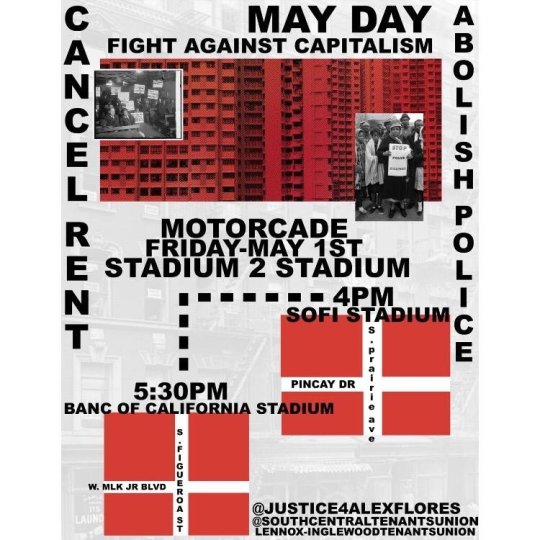
Delivered 5/1/2020 at LA Tenants Union May Day Motorcade against capitalism and police violence
“What’s good people?
I’m Bee, my pronouns are they/she/he, I’ve lived in South LA for the last 4 years and in Los Angeles since 2010. Today is a holy day for activists and it’s lit and makes perfect sense that workers and tenants would come together today, since we are often one in the same, to make damn sure that WE are seen and heard and CARED for - not bailed out or sent back to work without protections and proper pay or way before it’s actually SAFE!
I’m here today representing the Altar Haus, a collective of 6 black and latinx queer and trans folks in South Central. Every one of us has had our income impacted, if not completely erased, and we can not pay rent, so we won’t pay - and we did not in April and we will not until our work returns when it is SAFE - so we are rent striking. We don’t believe landlords or corporations deserve to make income from people who can’t, especially during a global health crisis. We do believe Housing is a basic need and a human right, so really landlords and banks should never make a profit from exploiting people’s needs in the first fucking place. That is the curse of capitalism and that is why we must divest from that shit and support regenerative economics, invest in farming, housing and worker cooperatives so workers and tenants can own the means to meet our own needs. So we can build strong, trusting relationships and communities who connect and support each other, towards a world where we don’t need or want the police because we practice transformative justice, not criminal justice, and we have everything we need. This is a world we’re starting to see with mutual aid networks popping up and tenants and worker unions sprouting up everywhere and we can push this momentum.
Today we have a chance to make demands! To let it be known, the poor and working class, who are largely black and brown, will not martyr ourselves for this economy, our ancestors already did that! Tenants across the country today stand in solidarity with workers striking from Instacart, Walmart, Whole Foods, Amazon, Target, and more! We demand rents and mortgages canceled TODAY! We demand healthcare for all! We demand housing for all! We demand all prisoners and ice detainees freed! We demand debt relief from bills and utilities so we can stay safely home and let these billion dollar profit corporations pay to save this economy, NOT US! Y’all lil President trying to make a buck off a malaria drug made by a French company he invested in and telling doctors they didn’t have to treat trans people; local governments rushing to send people out to make and spend money so they won’t have to keep funding people’s ability to live; forcing meat processing plants to stay open when the virus is spreading among their workers; demanding the post office increase their rates or lose funding; ongoing ice raids and police still protecting and serving property owners and the state, terrorizing and murdering our neighbors without recourse; continued real estate speculation and construction on these stadiums and developments steady decimating low income communities, while we’re supposed to stay at home, but we can’t work and still none of these politicians have canceled rent or mortgages, all this shows you what’s up - these “leaders” all got their priorities fucked up! And people in black and brown communities been knowing these mutha fuckas never loved us, they’re trying to kill us! We know by now COVID is killing more black and brown people than any other group: because, thanks to white supremacy, we’re the most likely to have underlying health conditions, created by our environments, insert food deserts + environmental racism; from being more likely to work in low paying service jobs where we interact with high volumes of people; which we get thanks to shitty education in our neighborhoods, funded based on property taxes, do you see where i’m going with this? Basically all COVID did was highlight and exploit these social determinants of health, by making everyone vulnerable and making it impossible to ignore the most impacted.
So, with the sun moving into Taurus, it is time that we see this moment for what it is and get clear, grounded and bullish about what we will and won’t accept from a government, a society, an economy that are supposed to serve and sustain the people. What’s happening now is what you get when corporations buy your government and profit is prioritized over everything, including people’s lives and well-being, let alone nonhuman life on earth and the well-being planet itself. People are dying now, but people have been dying and so has this planet, so while this crisis is crazy tragic, it is disruptive and transformative for the necessary end to a way of living and being that couldn’t be sustained, it’s like the planet saving itself from us. So in a way I thank COVID for making the world stop and forcing us to remember that we are all connected, that we are all human, that what we do individually, impacts everyone collectively. So I want you to remember, if nothing else, that everything is energy - if you ask scientists and spiritualists they’ll say the same thing. So that means you are more than a worker or a tenant, you are energy and you have the ability to create a life that you see fit - THAT is what makes you valuable, not your labor and ability to make someone rich. So let’s collectively focus on canceling rent - We have a bill to cancel rent and mortgages in congress right now thanks to Ilhan Omar of Minn. So I encourage you to go to homesguarantee.org/cancelrent to demand our state representative support H.R 6515, which also creates financial relief for landlords’ lost income and a mechanism to help community land trusts buy properties that end up being sold. This would be a major win, and, like Assata said, it is our duty to fight for our freedom, it is our duty to win! We must love and protect one another. We have nothing to lose but our chains!
Thank you for being here today! I know we will win!”

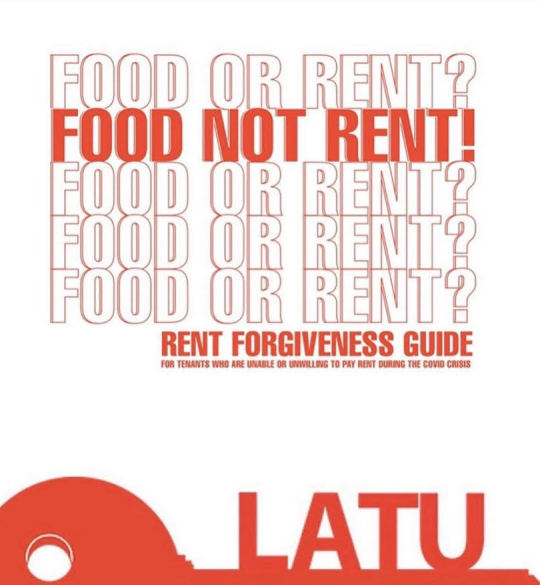
[Above Top: Graphic from LA Tenants Union differentiating between housing vouchers/rent assistance/rent relief and cancel rent; below: graphic from the LA Tenants Union’s Rent Forgiveness Guide]
[Below: Photo from a Mother’s Day die-in at the mayor’s house]
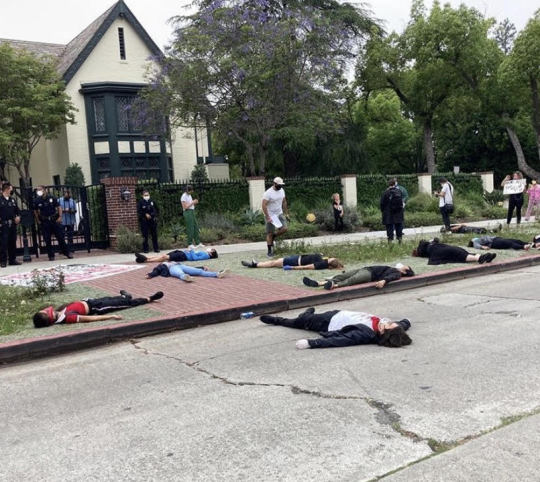
//
Follow Bee on Instagram @beetheeshiftshaper_ and the L.A. Tenants Union @latenants to keep up with some of the organizing being done on the West Coast.
0 notes
Photo
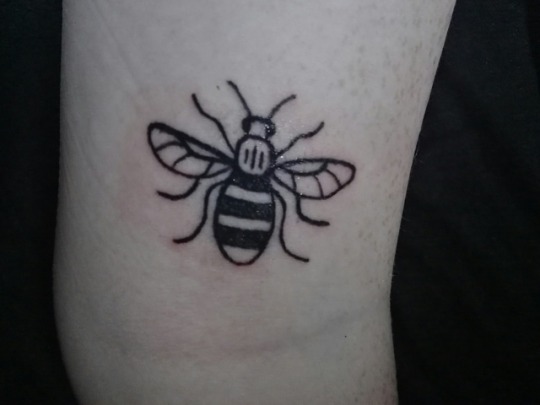
The worker bee has been the symbol of Manchester since the 1840s and represents the hard working nature of the city. The city was given a coat of arms in 1842 which included said bee within it. The city's textile mills were usually referred to as hives of activity as well as the workers within them given the nickname bees - the phrase "busy bee" is still in use to this day to refer to a hard worker. The bee is commonplace in the city: bins, the Palace Hotel clock face, the Town Hall floor, the beehive on top of the Printworks...to name a few. But since last week's terror attack, the bee has an additional sentiment. It signifies solidarity; the people of Manchester coming together, showing that we aren't scared of hatred and that love always wins. Flowers are pouring into St Anne's Square. Don't Look Back In Anger has become the anthem for the tragedy. Worker bee murals have appeared all over the city. This is Manchester; we do things differently. And we especially do fundraising differently. The Manchester Evening News set up a just giving page to fundraise for the families affected by last week's attrocity; a Stalybridge-base tattoo artist has started the Manchester Tattoo Appeal for the same purpose. Tattoo artists all over Manchester are using their time and equipment and are tattooing the worker bee onto anyone willing for £50. All of this money will go to the families as well. So far, studios have raised thousands individually - some raising thousands daily. And this is my bee. Manchester is my home. It's where I was born, I've lived here my whole life, gone to school and worked. This wonderful city is the place I call home. I'm proud to be a Manc. Please, if you haven't already, get out and donate some cash to the fundraisers. The money won't bring back a loved one or make them magically better overnight, but it will go a long way to support them. Many families will be out of work grieving and some will be unable to afford ongoing care if it's unavailable on the NHS. These people need all the help and support. Many companies are also donating the profits of certain products to the campaign. Places like the Manchester Bee Company, some shops in Afflecks and ilovemanchester.com.
#Manchester#worker bee#Manchester bee#tattoo#manchester tattoo#Manchester tattoo appeal#Wigan tattoo#butcher's block
1 note
·
View note
Text
Tattoos of Reflection: Moving Left to Right, Top to Bottom
Top Left:
Floral arrangement of lilies in rememberance of a young woman’s death of her mom. The flower was her mothers favourite flower and the splash of yellow was her favourite colour. Utilised fine line, stipple shading, and dense colour packing in terms of tattoo technique. Strong illustrative qualities and fits the anatomy of the client well. Yellow is a difficult colour to saturate and may go patchy upon healing which would need a touch up: darker colours always saturate better. Maybe avoid light tones such as yellow in a final piece design.
Top Center:
Rib Piece devoted to a set of still born twins for a father. The word play relates to the ascension to a place beyond the natural earth, giving a sense of closure that the children live on in spirit. Baby blue and hot pink utilised to represent the gender of each child in relation to colour theory and cultural stereotypes highlighting blue as male and pink as female, the vibrancy of such popping colours feature the children’s memory fondly and of the bright future they could’ve had. Execution was positive, the ribs stretch and aren’t very fatty so are difficult to tattoo, will deinfinately avoid this area as a canvas for a final piece. Conceptual message reciprocated well as the text delivers the message along with the connotations of wings, however i probably wont include text in a final piece design as i find it too literal and can destroy contextual aesthetic devloping into conceptual thinking.
Top Right and Bottom Left:
After the terrorist attack at an Ariana Grande in Manchester killed 23 young people and 139 injured, the symbol of the bee became synonymous with solidarity and community pity. Naturally the bee operate as a hive and each worker serves the queen, the queen in this instance is the mental security of Manchester and UK populous. In terms of technical application, this piece was easy to do but had a strong impact on the client’s skin. This is pulled from the heavy black lines contrasting with the yellow and white tones in the body and wings. The composition with the surrounding text frames the piece and pulls the eye to the bee. In addition, the placement on the calf was a good decision, it’s what the client wanted but i was happy to follow as the oval nature of the calf sit well with the shape of the piece. Furthermore, the calf is quality skin and easy to tattoo; it takes ink saturation well and often doesn’t require a lot of stretch work for me as a tattooist. I think the only other place where this piece would work as good would be the inner bicep, but it does make me think of the quality leg skin has for holding the application of a tattoo: possible canvas area for my design?
Bottom Center:
The Poppy; a symbol of rememberance and of thankfulness given it is the image best associated with Rememberance Day. The client chose to have this tattoo as a rememberance of the 1st anniversary since her Grandad’s death, a war time veteran who operated as a strong figure within the overall family dynamic. It is interesting that the poppy was chosen toreflect on the loss of her grandad as the poppy’s true meaning is of sleep, peace and death due to the nature of the opioids found in poppy seeds. It is found in old Chinese literature that poppy seeds were used to escape reality by isolating the poppy seeds into straight Opium. This makes me consider alternative connotations that might be associated with images i choose for a final piece design and whether they are direct enough to transfer my conceptual message. This tattoo was done in the style of New Skool, where there are strong lines, much like Chris Garver, but advances beyond Garver’s style in the application of a more realism shading mixed with vibrant colour. I really like this method of tattooing and believe it will probably be the style i attempt a final piece with as its my strongest field.
Bottom Right:
I would argue that true realism Black and Grey is harder to achieve than colour work, the technical application requires a much softer hand and strong knowledge of tone and shape. The client wanted the three lilies to represent her 3 children; this relates to the meaning of lilies symbolising purity. Family is a common theme of tattoo themes and flowers are often utilised due to their aesthetic qualities and the conceptual referencing they bring about. I believe by including some form of flower i can achieve this delivery of conceptual meaning; also, the incorperation of flora ties in with the project overview being based on growth and nature. The piece works nicely with dark spots located under folded petals contrasting with the open skin breaks that generate a natural highlight. Many tattooists are afraid to go black in some areas of tattoos, especially in realism, but generating true dark spots that would genuinely have no light getting to them will help build a greater range of tones and excelll the piece in terms of contrast. This is a key factor i will be bringing forward into my work as contrast is key in generating impact; a greater impact with my piece to shock the artist community with an aestheticlly pleasing; conceptually challenging piece of art: not just a tattoo.
Overall, common themes reflected upon in these tattoos are family, death and symbology. Moving forward I think the connotations from images i utilise is important whilst the topic of reflection can alter person to person. Personally, i think self reflection offers the strongest avenue to express growth which is vital for me to connect to my Open Borders topic whilst still delivering my conceptual message of a clients self reflection.
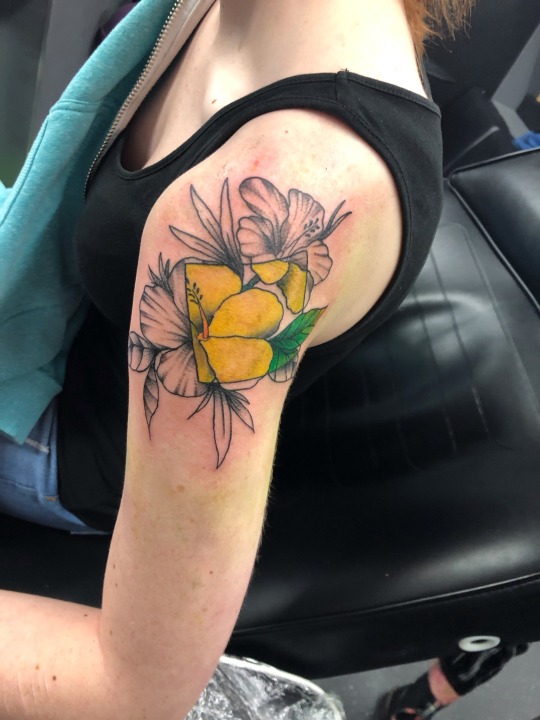
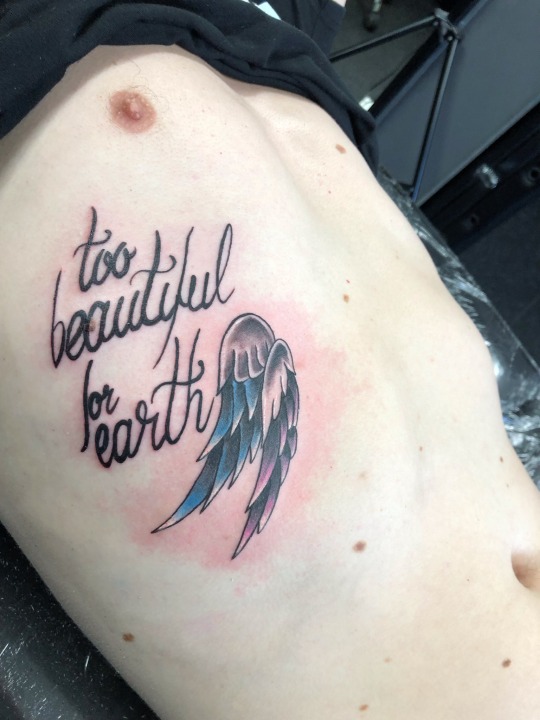
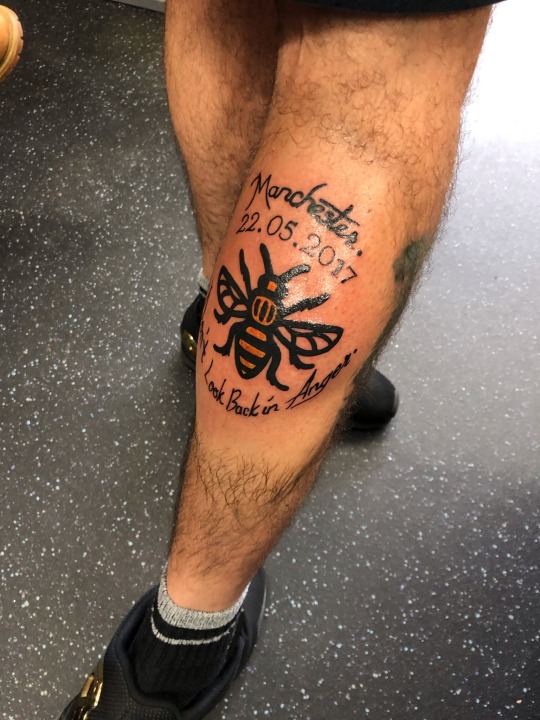
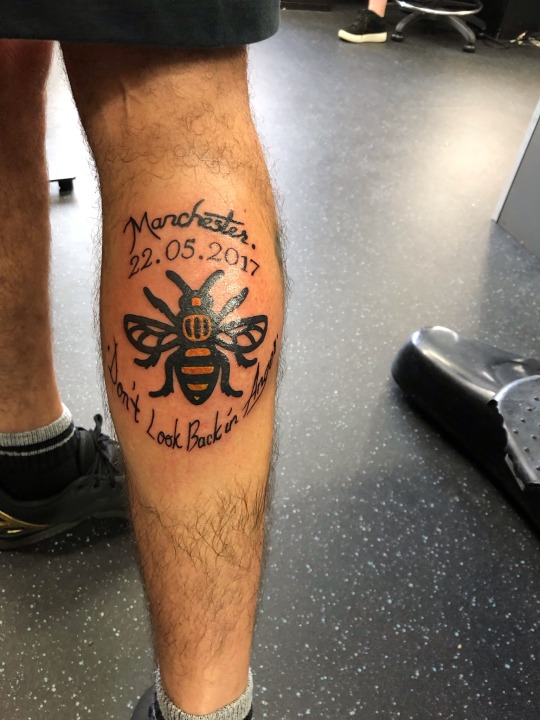
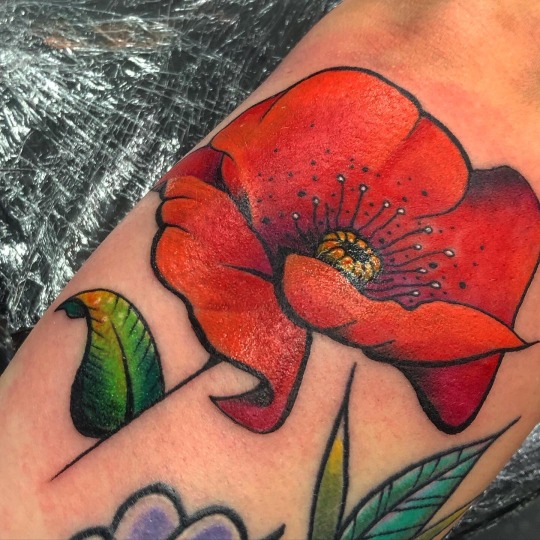
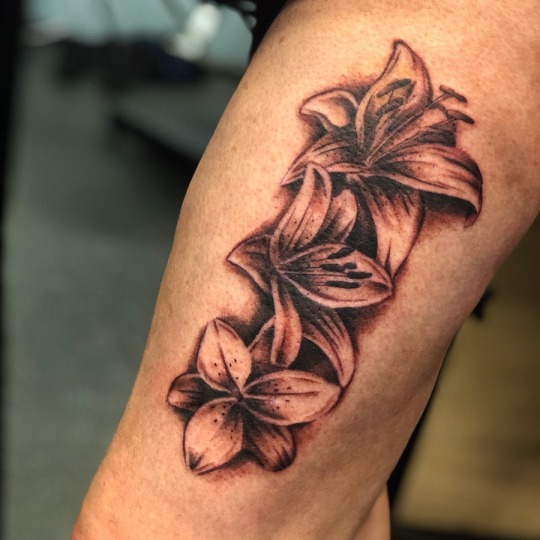
0 notes
Link
When I was a teenager, I occasionally affected a sort of absurdist faux-racial militancy, declaring myself the Generalissimo of the Most Serene Popular and Revolutionary Democratic Republic of Brooklyn, a breakaway statelet committed to Afro-Asian revolutionism. I asked my best friend—who was white, incidentally—to serve as minister without portfolio, and he happily obliged. Rest assured, this sounded just as silly then as it does now. But I shudder to think of what might have happened had Twitter been around back then. My playfulness would surely have been mistaken for something more sinister.
I thought of this when Sarah Jeong, a much-admired technology journalist with sterling credentials, became the center of one of our periodic micro-controversies for having written pointed missives about whites on Twitter. The tweets surfaced shortly after the New York Times announced that she would join its editorial board. Jeong insists that her remarks represented a satirical response to racist abuse she had received over the years, and I won’t presume to better understand her inner thoughts. The Times accepted her explanation, resisting calls, mostly from the political right, to fire her. Others, such as my National Review colleague David French, defended the decision not to fire her while stressing that anti-white rhetoric shouldn’t be lightly dismissed. I am sympathetic to French’s argument, which he makes with great care. What I want to do, though, is look beyond the particulars of Jeong’s remarks to better understand why anti-white rhetoric is, in some communities, so commonplace as to be banal.
To state the obvious, Jeong is hardly alone in colorfully expressing anti-white sentiment, and it is this broader phenomenon I find most interesting. Honestly, I’ve been around this sort of talk, most of it at least half-joking, for most of my life. (Years ago, I even affectionately parodied it.) The people I’ve heard archly denounce whites have for the most part been upwardly-mobile people who’ve proven pretty adept at navigating elite, predominantly white spaces. A lot of them have been whites who pride themselves on their diverse social circles and their enlightened views, and who indulge in their own half-ironic white-bashing to underscore that it is their achieved identity as intelligent, worldly people that counts most, not their ascribed identity as being of recognizably European descent.
One reason I’ve been disinclined to take this sort of talk seriously in the past is that it has so often smacked of intra-white status jockeying. It is almost as though we’re living through a strange sort of ethnogenesis, in which those who see themselves as (for lack of a better term) upper-whites are doing everything they can to disaffiliate themselves from those they’ve deemed lower-whites. Note that to be “upper” or “lower” isn’t just about class status, though of course that’s always hovering in the background. Rather, it is about the supposed nobility that flows from racial self-flagellation.
But many of the white-bashers of my acquaintance have been highly-educated and affluent Asian American professionals. So why do they do it? What work is this usually (though not always) gentle and irony-steeped white-bashing actually performing?
Some of this is just obvious edgelord trolling: the most transgressive thing you can get away with saying without actually getting called out for it. In this sense, it’s a way of establishing solidarity: All of us in this space get it, and we have nothing but disdain for those who do not. And some may well be intended as a defiant retort to bigotry.
But that doesn’t exhaust the universe of possibilities. In some instances, white-bashing can actually serve as a means of ascent, especially for Asian Americans. Embracing the culture of upper-white self-flagellation can spur avowedly enlightened whites to eagerly cheer on their Asian American comrades who show (abstract, faceless, numberless) lower-white people what for. And, simultaneously, it allows Asian Americans who use the discourse to position themselves as ethnic outsiders, including those who are comfortably enmeshed in elite circles.
The 9.9% is the new American aristocracy
Think about what it takes to claw your way into America’s elite strata. Unless you were born into the upper-middle class, your surest route is to pursue an elite education. To do that, it pays to be exquisitely sensitive to the beliefs and prejudices of the people who hold the power to grant you access to the social and cultural capital you badly want. By setting the standards for what counts as praiseworthy, elite universities have a powerful effect on youthful go-getters. Their admissions decisions represent powerful “nudges” towards certain attitudes, beliefs, and behaviors, and I’ve known many first- and second-generation kids—I was one of them—who intuit this early on.
Consider the recent contretemps over Harvard’s undergraduate admissions policies. Critics argue that the university actively discriminates against high-achieving Asian American applicants by claiming that a disproportionately large number of them have lackluster personalities. One obvious reaction to this charge is to denounce Harvard for its supposed double standards. This reaction might be especially appealing to those who see themselves as the sort of people who’d be dismissed by Harvard’s suspect screening process, and who’d thus have every reason to resent it. Viewed through an elite-eye lens, though, this sort of reaction can seem a little gauche. You’re saying, in a sense, that you can’t hack it—you just can’t crack the code. To a successful code-cracker, that could seem more than a little pathetic.
Does Harvard penalize Asian American applicants?
So what if you’re an Asian American who has already made the cut? In that case, you might celebrate Harvard’s wisdom in judiciously balancing its student body, or warn that Harvard’s critics have a darker, more ominous agenda that can’t be trusted. This establishes you as an insider, who gets that Harvard is doing the right thing, while allowing you to distance yourself from less-enlightened, and less-elite, people of Asian origin: You’re all being duped by evil lower-whites who don’t grok racial justice.
And if you’re an Asian American aspiring to make the cut, even with the deck stacked against you, you might eschew complaining in favor of doing everything in your power to cultivate the personal qualities Harvard wants most, or at least to appear to have done so. One straightforward way to demonstrate that you are Harvard material might be to denounce Harvard as racist, provided you’re careful to do so in a way that flatters rather than offends those who run the university and are invested in its continued success. For example, you might reject the notion that affirmative action is the problem while arguing that Harvard shouldn’t endeavor to increase representation of rural and working-class whites, on the spurious grounds that all whites are privileged. That you’ll make these claims even though you yourself are hardly among the most downtrodden is immaterial: The important thing is to be interesting. What better way to demonstrate that you’re not a humdrum worker bee, afflicted with a lackluster personality, than to carefully and selectively express the right kind of righteous indignation?
I certainly don���t mean to single out Harvard. As the senior assistant director of admissions at Yale recently observed, “for those students who come to Yale, we expect them to be versed in issues of social justice. We encourage them to be vocal when they see an opportunity for change in our institution and in the world.” Picture yourself as an eager high schooler reading these words, and then jotting down notes. You absorb, assuming you hadn’t already, what it takes to make your way in contemporary elite America. And as you grow older, you lean into the rhetorical gambits that served you so well in the past. You might even build a worldview out of them.
Or, alternatively, this sort of rhetoric can be less a tool of assimilation than a method of alleviating what I’ll call the burden of representativeness. If you are an outsider who finds yourself in an elite space, you may well feel an obligation to represent the people for whom you are serving as a stand-in—working-class people, or the members of disadvantaged minority groups. This could be true even, or perhaps particularly, if you are decidedly unrepresentative of the others in the group. Because you are present in elite spaces, your authenticity will often be called into question. So white-bashing becomes a form of assuaging internal and external doubts, affirming that despite ascending into the elite, you are not entirely of it.
Asian Americans and the Burden of Being a “Model-Minority”
Whatever their purposes, such statements don’t exist in the abstract. They’re addressed to specific audiences and serve particular ends. It’s when they travel beyond the audiences for which they were crafted that they backfire—the carefully calculated transgression now goes too far, the intended signal is no longer received. But despite the outrage they generate, they’re unlikely to disappear; in a variety of ways, they’re too useful to those who employ them to abandon.
from The Atlantic https://ift.tt/2vKVBXw
0 notes